An ocean liner of the Cunard Line, RMS Aquitania served from 1914 to 1950. Leonard Peskett designed her, and John Brown & Company built her in Clydebank, Scotland. She had the advantage of both speeds with the Lusitania and Mauritania and the size and grandeur of the Aquitania with the launch of the Aquitania on 21 April 1913. While her speed was slower than her two competitors, the RMS Aquitania made up for it in terms of luxury and amenities. The only ocean liner to survive both world wars, the RMS Aquitania was the last operating four- funneled passenger liner. In WWI, the ship served first as an armed merchant cruiser, then as a troop transport ship, and finally as a hospital ship assisting in the Dardanelles campaign. During WWII, the ship transported Canadian soldiers. During the 1920s, the ship was nicknamed ‘Ship Beautiful’ by her passengers as one of the most classic-looking liners.
The Largest and Most Luxurious of Cunard
By far the largest Cunard steamer during WWI, the Aquitania was roughly the same size as the RMS Olympic. In terms of large plush vessels, she was able to compete with White Star and Hamburg America. With the end of World War I, the Aquitania was joined by the new RMS Berengaria, formerly the SS Imperator of Germany. The ship was top-rated in the 1920s and almost always sailed as a profitable vessel. Following the Cunard White Star Merger of 1934, the Queen Mary and Queen Elizabeth were ordered to replace the aging British fleet. As Aquitania was the newest and best-maintained ship, it was decided that she would remain sailing until Queen Elizabeth was ready to replace her. After the other four funneled liners retired during the 1930s, the Aquitania continued to sail until WWII.
Aquitania During WWI and WWII
During both World Wars, the Aquitania was the only ocean liner that sailed. Despite being launched right before the start of WWI, the Aquitania did not see much civilian service before being requisitioned for the war effort. Initially, she was too expensive to sail since she was armed to sail as an armed merchant cruiser. Soldiers were transported to different battlefronts around the world by the ship as a troopship. Soon after, hospital ships became necessary. During WWI, the Aquitania assisted the Britannic in healing and returning wounded soldiers home. After WWII, the ship was to be retired, but the British Admiralty repurposed it as a troop transport; the Aquitania was back at work, serving as a troop transport. After mainly sailing between Britain and Canada during the war, the ship survived and continued to sail for Cunard until 2004, when the RMS Queen Elizabeth II passed the ship as the longest-serving Cunard liner.
RMS Aquitania’s retirement
Following its service as a troopship, Aquitania was returned to Cunard in 1946 and used to transport war brides and their children to Canada under charter from the Canadian government. The final service in Halifax, Nova Scotia, the port of disembarkation for these immigration voyages, created a particular fondness for Aquitania. After completing that task in December 1949, “Aquitania” was taken out of service when the Board of Trade certificate of the ship was not renewed because it had reached a stage where the ship was too old and in an uneconomical condition be brought up to today’s safety standards. After 450 voyages and 3 million miles of travel, the vessel was retired and scrapped in 1950 in Scotland. The Aquitania carried 1.2 million passengers over nearly 36 years, making her the longest-serving Express Liner of the 20th century.
#1 Aquitania at the Clydebank yards of John Brown.
#2 The passenger liner Aquitania under construction by John Brown & Co Ltd. at Clydebank. A general view along the port side of the ship, 1913
#3 901 feet long, 97 feet wide. Passenger capacity- 610 1st Class, 950 2nd, and 1,998 3rd. The 45,647 ton Aquitania at John Brown & Company shortly before her launch, circa 1913
#4 Cunard’s Aquitania on the stocks at John Brown & Company of Clydebank; the same Scottish yard that would later build the Queen Mary, Queen Elizabeth and Queen Elizabeth 2, circa 1913
#5 One of Aquitania’s massive funnels is about to be hoisted onboard during the liner’s fitting-out, circa 1913
#6 A sea of spectators watch the launch of Aquitania at John Brown & Company of Clydebank on 21 April 1913
#7 Aquitania in John Brown’s fitting-out basin, early 1914
#8 View from Aquitania’s flying bridge.
#9 One of Aquitania’s officers is dwarfed by the towering forward funnel and a collection of cowl ventilators.
#10 Aquitania moves down the Clyde beginning her sea trials on 10 May 1914
#11 Aquitania during her 3 days of trials. She reached 24 knots; a full knot more than expected, May 25, 1914
#12 Aquitania’s portside Boat Deck with steamship lines still reeling from the loss of life aboard Titanic, strolling space for passengers has been sacrificed for lifesaving equipment, 1914
#13 2nd Class open deck space has been sacrificed in order to carry additional collapsible lifeboats, circa 1914
#14 Aquitania’s 1st Class Garden Lounge, photographed prior to the delivery of dozens of potted palms and ferns.
#15 Aquitania’s 1st Class Grand Entrance. The port side of the Grand Entrance at Promenade Deck (A Deck) level, decorated in the Louis XVI style, April 1914
#16 Grand Staircase aboard the Aquitania. The decoration of the Grand Staircase was carried out by Marcel Boulanger, Paris, April 1914
#17 Aquitania’s 1st Class Lounge, prior to the liner entering service. This was also called the Palladian Lounge, and was located on the Promenade Deck (A Deck), April 1914
#18 1st Class Drawing Room aboard Aquitania. The Drawing Room was also called the Adam Drawing Room, and was located on the Promenade Deck. This view is of the library section, looking forward, April 1914
#19 1st Class Swimming Pool, on the starboard side of the Main Deck (E Deck).
#20 Interior of Aquitania showing the 3rd Class General Room (or Non Smoking Compartment), on the Upper Deck (D Deck), a view of the port side, looking forward, April 1914
#21 Aquitania’s 1st Class Lounge (fireplace detail). Aquitania’s Palladian Lounge is often described as the most beautiful room ever put to sea, May 1914
#22 1st Class Smoking Room aboard Aquitania, also called the Carolean Smoking Room, and located on the Promenade Deck (A Deck), May 1914
#23 Aquitania in the Gladstone Graving Dock, Liverpool, in preparation for her maiden voyage. The cleaning and painting work appears to be complete, May 1914
#24 Portside view of Aquitania in Gladstone Graving Dock, Liverpool, in preparation for her maiden voyage across the Atlantic, May 1914
#25 Aquitania Wheelhouse, part of the Navigating Bridge on the Boat Deck.
#26 Aquitania departs the Liverpool Landing Stage at the start of her maiden voyage to New York, May 30, 1914
#27 Adorned with fresh flowers and ready for her first passengers; Aquitania’s 1st Class Lounge, May 30, 1914
#28 1st Class Dining Saloon aboard Aquitania. The First Class Dining Saloon (Louis XVI Restaurant), on the Upper Deck (D Deck). A view of the central area, looking forward, May 1914
#29 1st Class Grill Room aboard Aquitania. A view of the forward section of the extra tariff Grill Room, located on the port side of the Upper Deck (D Deck), May 1914
#30 The 1st Class Holbein Suite aboard Aquitania, May 1914
#31 1st Class suite C133 aboard Aquitania, May 1914
#32 1st Class suite C102 aboard Aquitania, May 1914
#33 1st Class stateroom A36 (an outside single) aboard Aquitania, May 1914
#34 1st Class cabin C24 (an outside single) aboard Aquitania, May 1914
#35 2nd Class Promenade aboard Aquitania. The starboard side of the Promenade Deck (A Deck), with a view of the sheltered area under the Boat Deck aft, May 1914
#36 Aquitania’s 2nd Class Lounge. The Louis XVI-style Second Class Lounge was on the Promenade Deck (D Deck). This is a view from the port side, looking towards the piano at the after end, May 1914
#37 The 2nd Class Smoking Room aboard Aquitania.
#38 Aquitania’s 2nd Class Verandah Cafe, on the Bridge Deck (B Deck). This view is looking across to the starboard side, with the sliding doors opened, May 1914
#39 View of Aquitania’s 2nd Class Drawing Room, on the Bridge Deck (B Deck); a view from the starboard side, looking towards the fireplace at the forward end, May 1914
#40 Aquitania’s 2nd Class stairway, May 1914
#41 The 2nd Class Dining Saloon aboard Aquitania, May 1914
#42 Aquitania’s 2nd Class stateroom C303, May 1914
#43 Aquitania’s 2nd Class stateroom C265. An outside four-berth, it was located on the Shelter Deck (Deck C), May 1914
#44 Aquitania’s 2nd Class stateroom E27. This two berth outside stateroom was on Main Deck (E Deck), May 1914
#45 Portrait of Mr. William Henry Allison (1863-1939). Mr. Allison was Chief Steward of the Aquitania on the voyages prior to the First World War, May 1914
#46 Deck view showing Aquitania’s 3rd Class Promenade at the after end of the Upper Deck (D Deck), a view of the port side, looking aft. Sparred seats are fitted along the bulwark at the right edge of the image, May 1914
#47 The forward section of Aquitania’s 3rd Class Dining Saloon, on the Lower Deck (F Deck), looking across to the port side. Stairs up to the Main Deck are visible in the background on the right, May 1914
#48 Aquitania passengers disembarking on to the tender at Fishguard, Jun 16, 1914
#49 Professional photographers aboard Aquitania during her maiden call at Fishguard, Wales, 16 June 1914
#50 On a misty June morning, disembarking passengers crowd the rail of their tender for a last look at Aquitania, making her maiden call at the Welsh port Fishguard on June 16, 1914
#51 Aquitania in New York Harbor in July 1914
#52 Aquitania as a hospital ship, off the Greek island of Lemnos, October 2, 1915. After her maiden voyage to New York in May of 1914, Aquitania’s commercial life was brief.
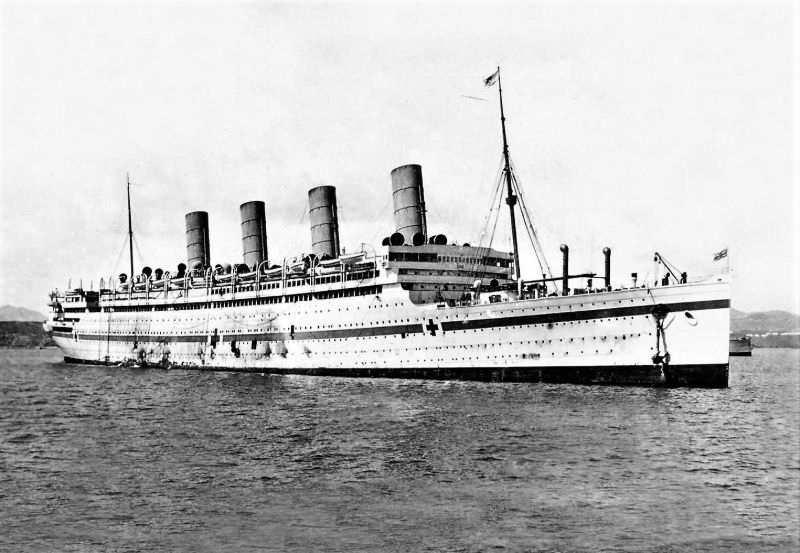
By August of that year she had been requisitioned by the government for use as an armed merchant cruiser. In the spring of 1915 it was decided the huge liner was better suited to trooping and hospital work. She was sent on troop voyages to the Dardanelles and then converted to a hospital ship


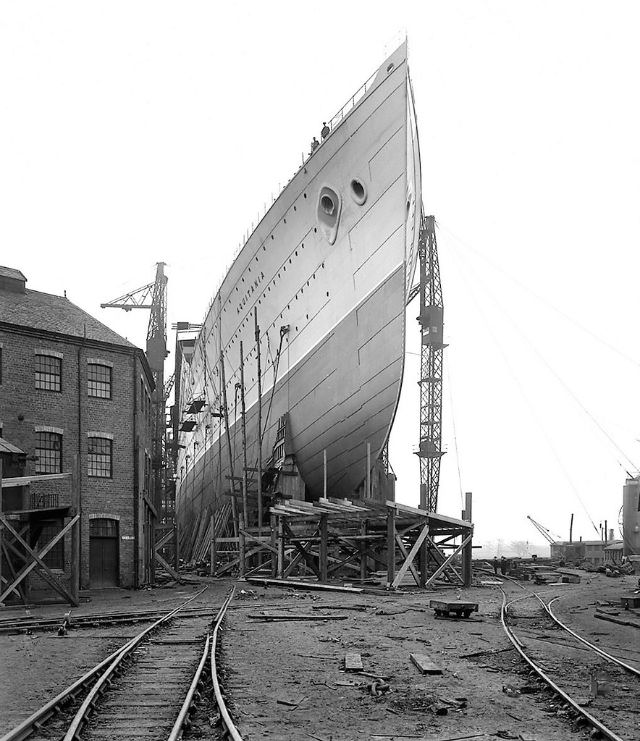
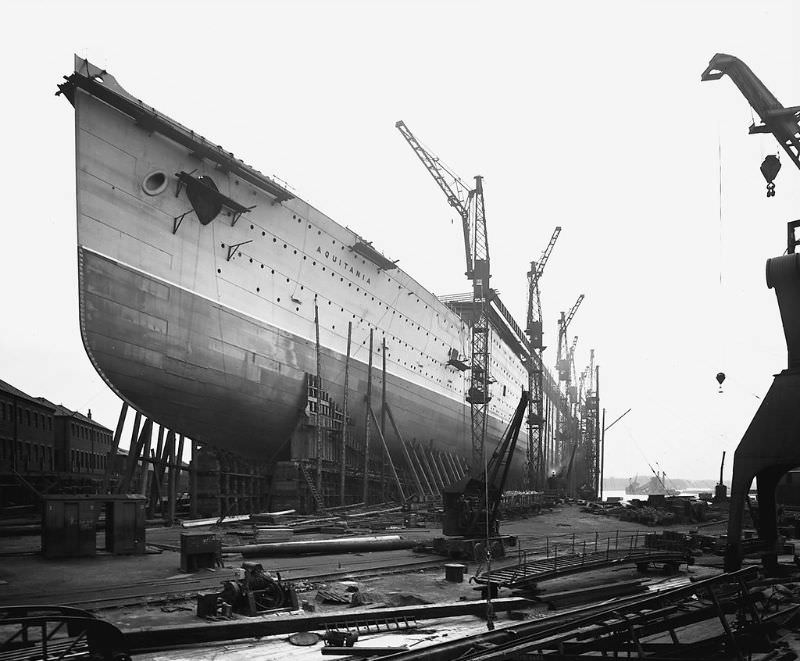
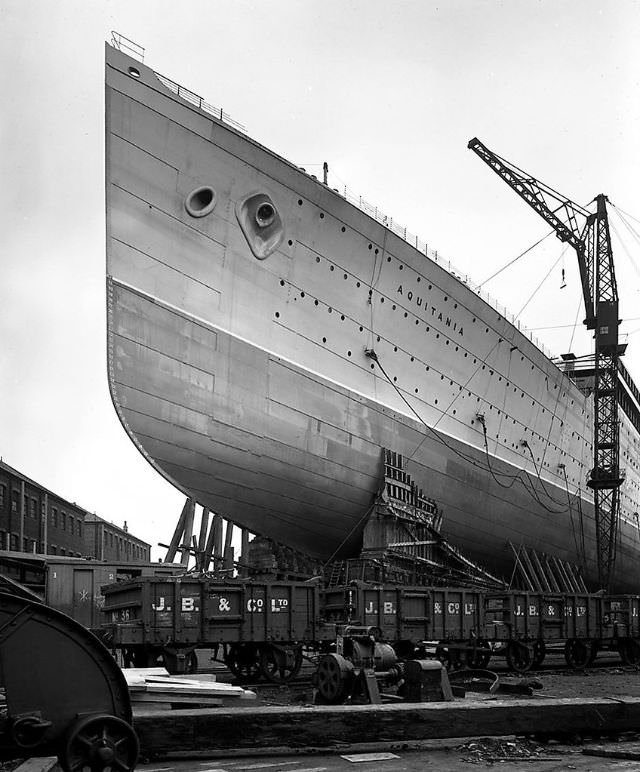
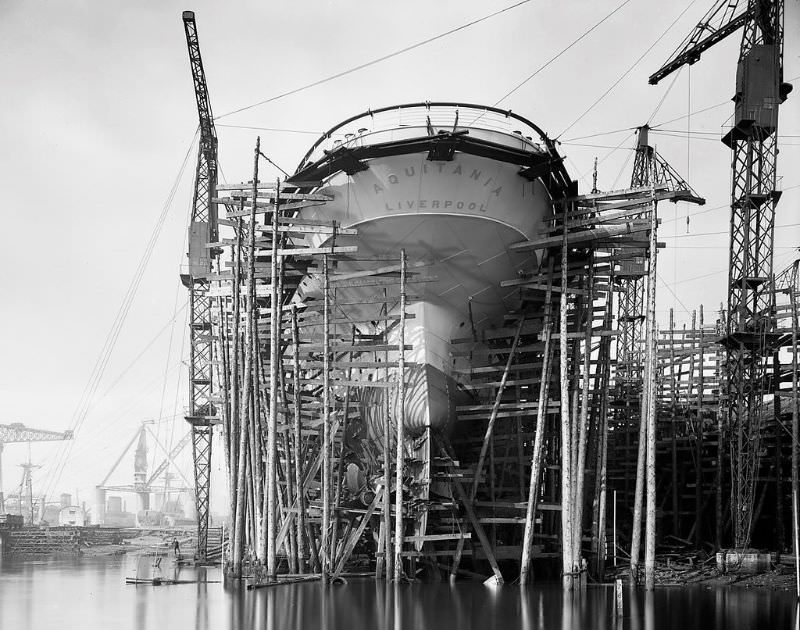
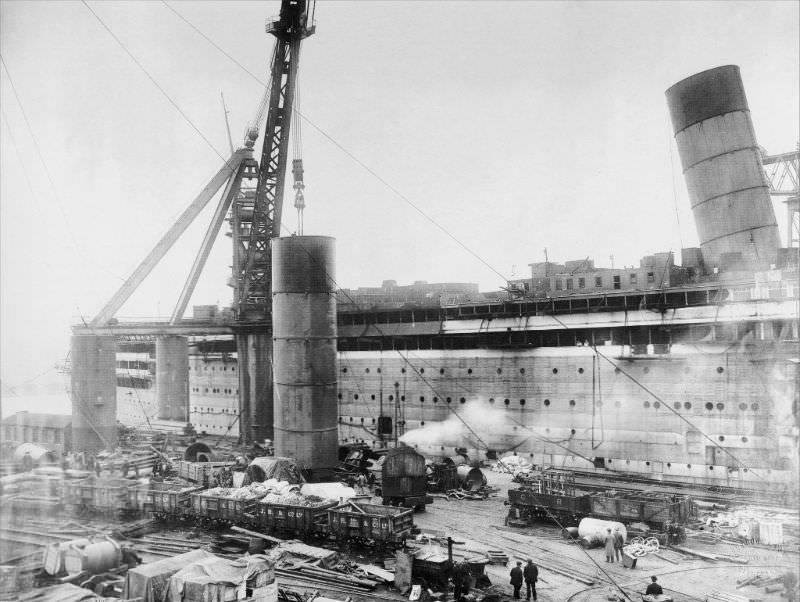
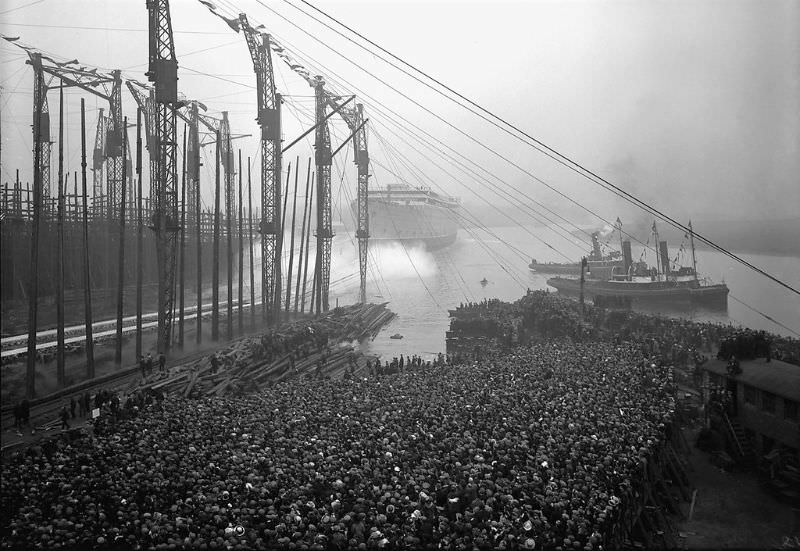
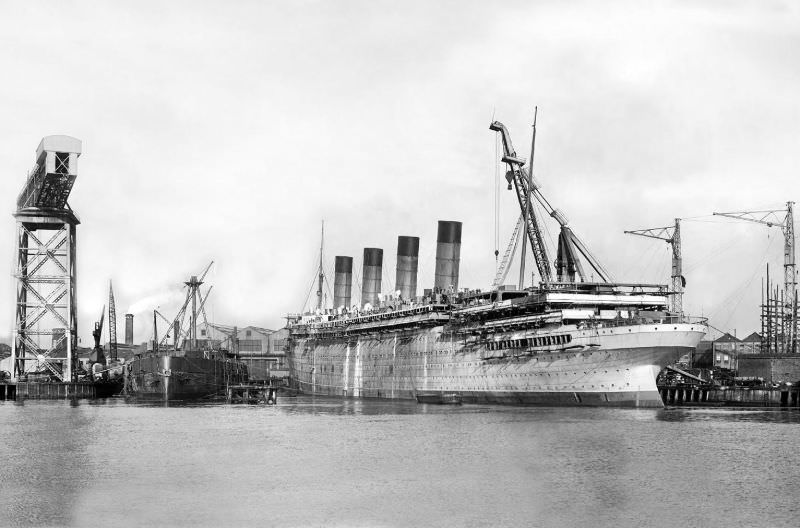
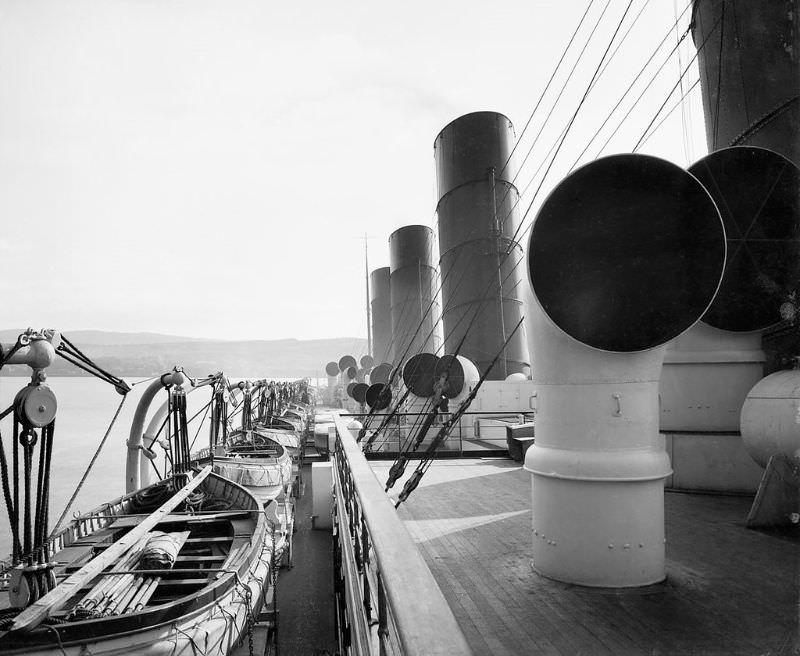
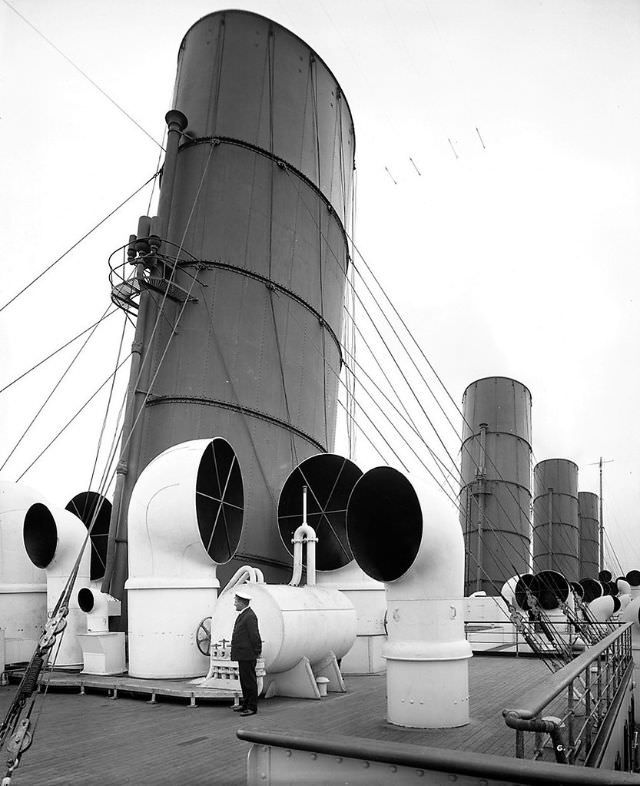
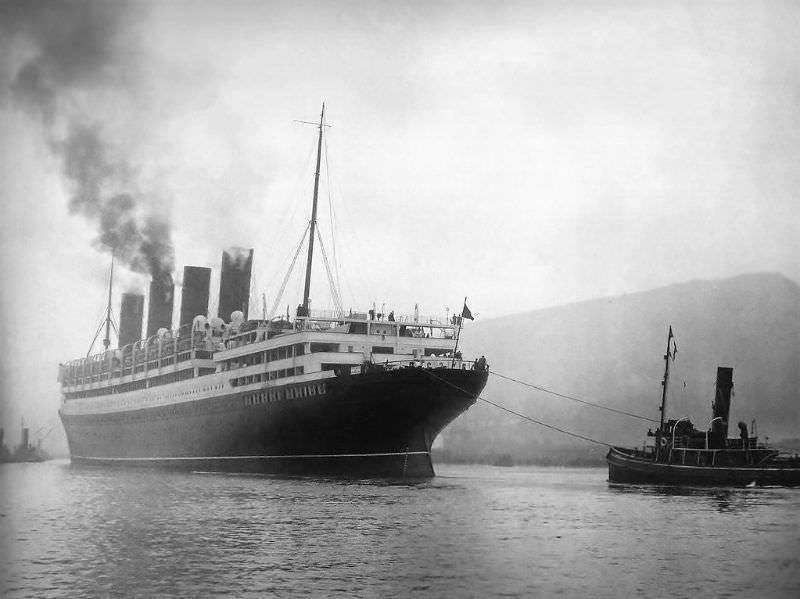
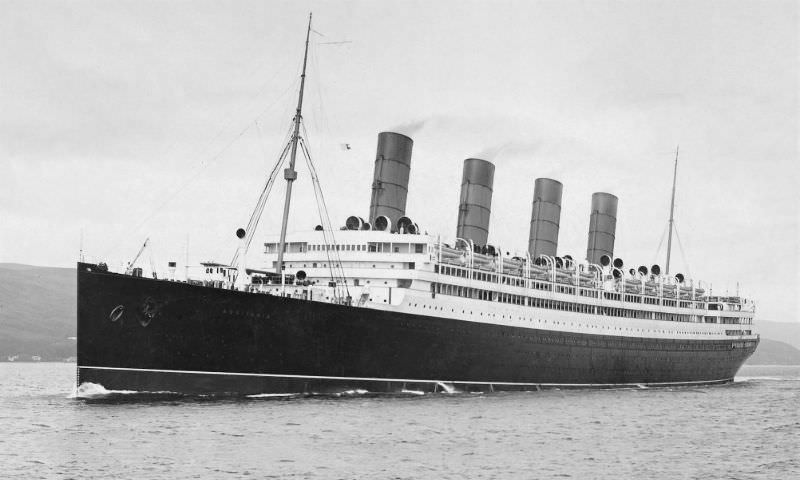
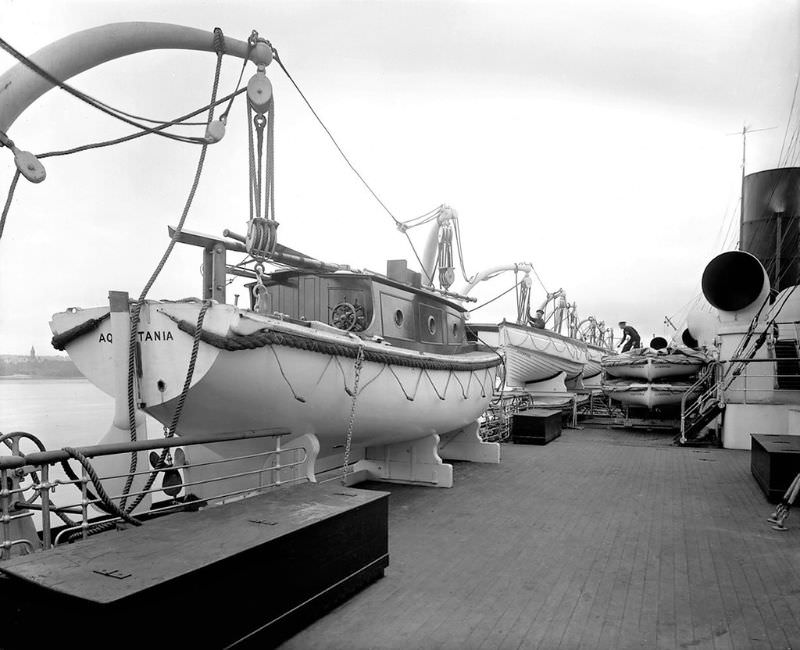
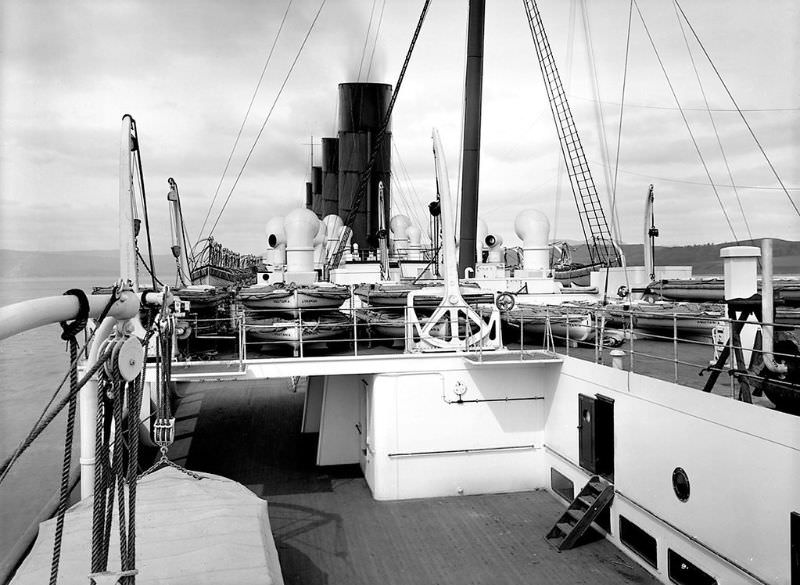
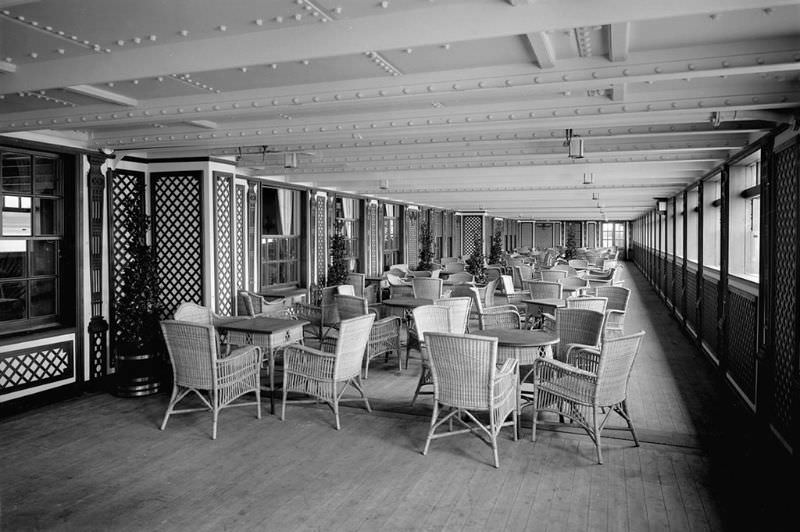
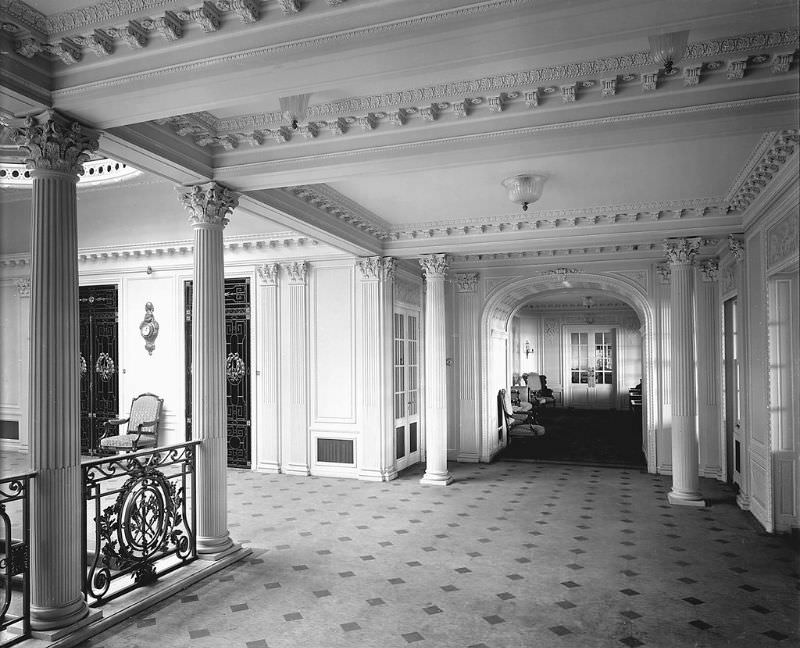
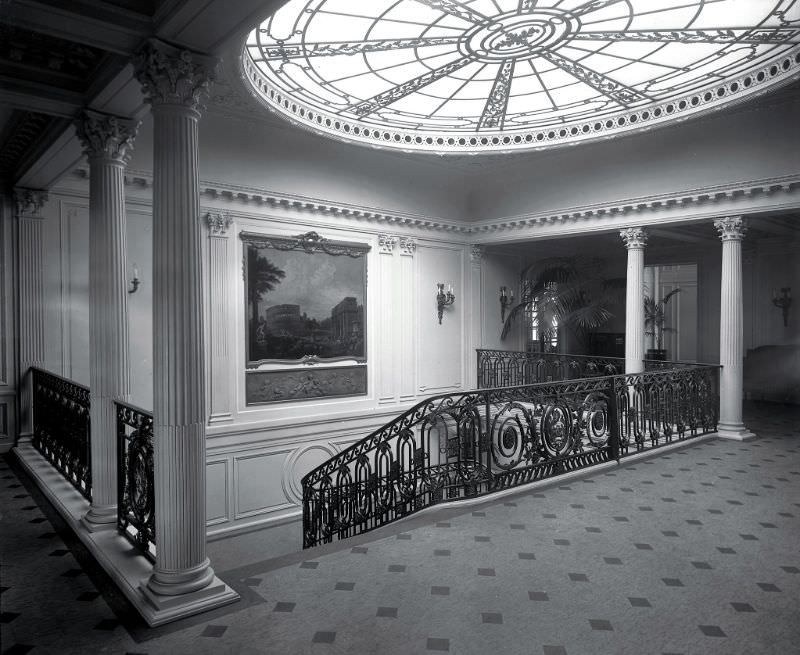
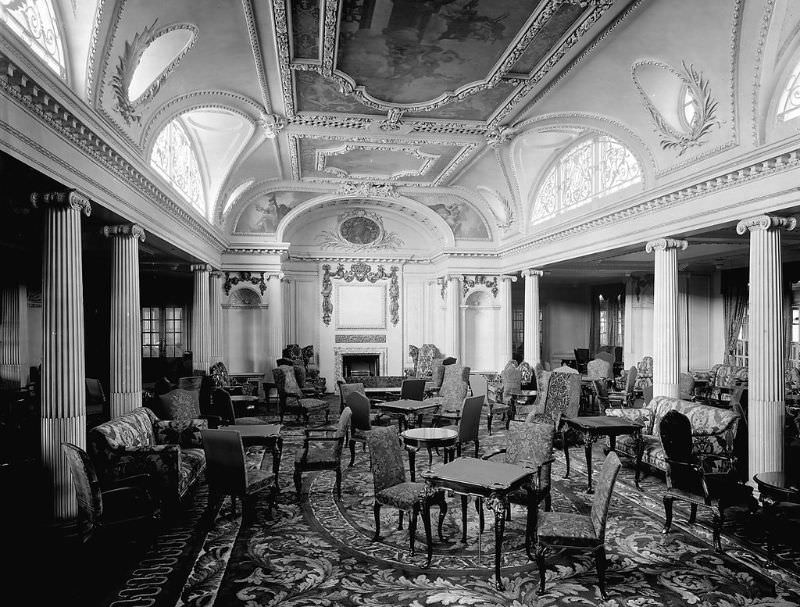
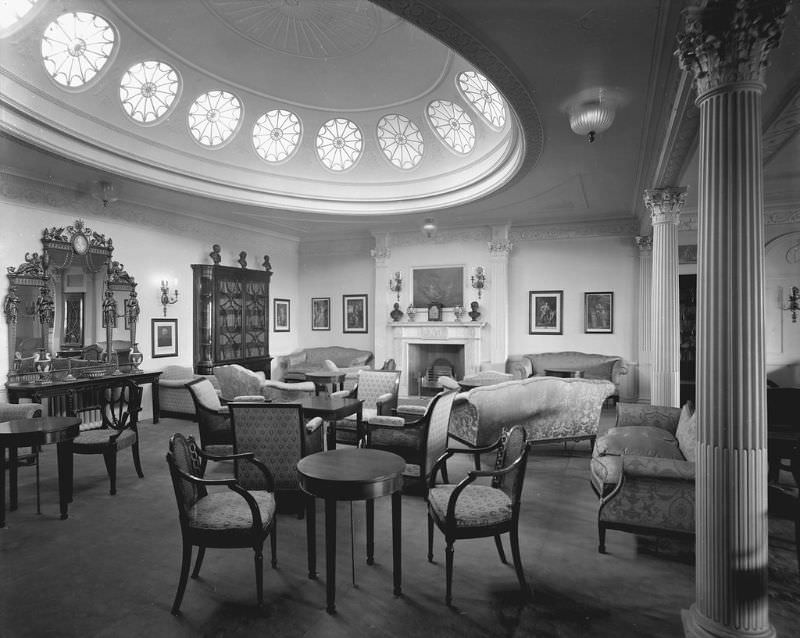
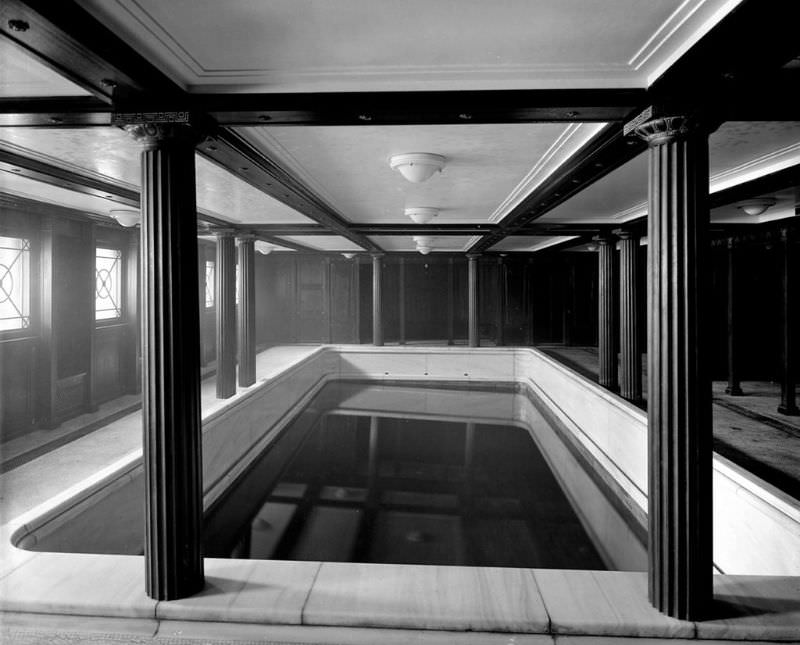
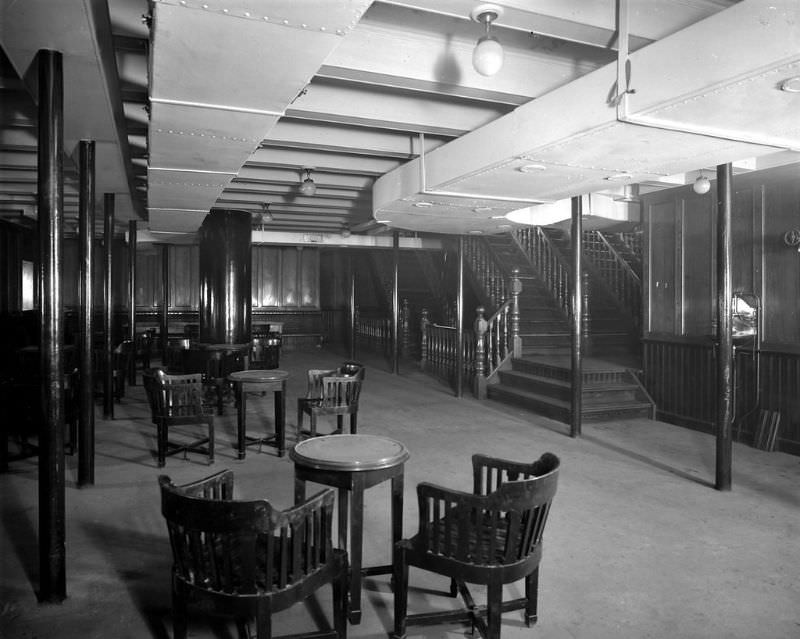
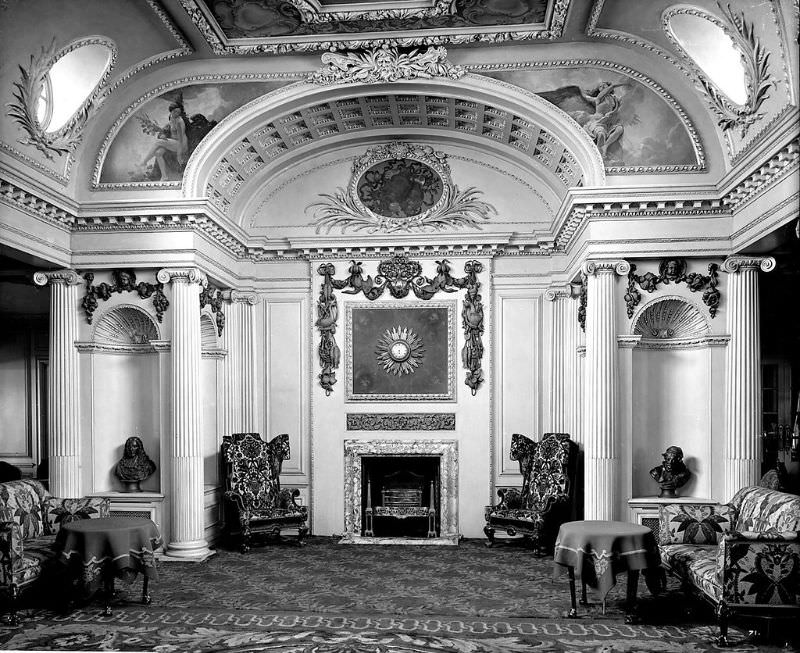
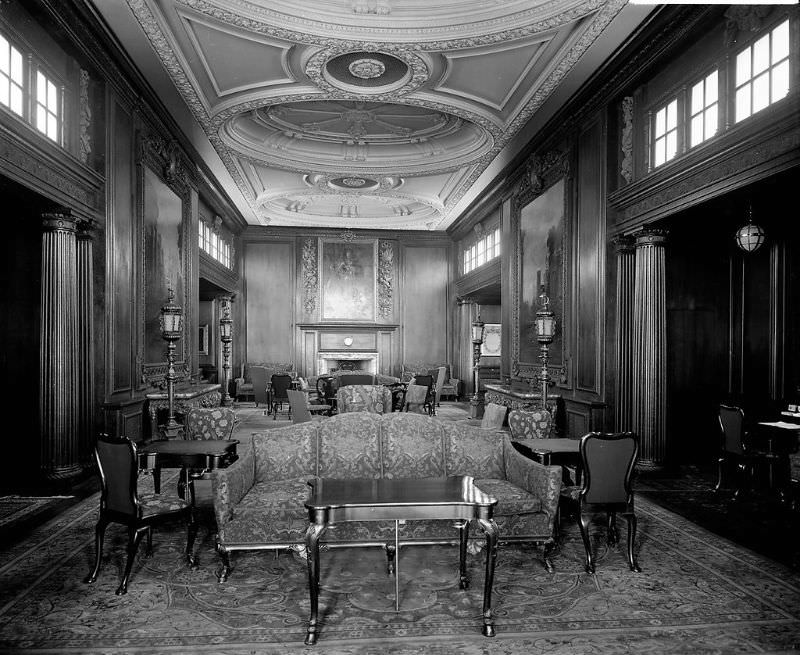
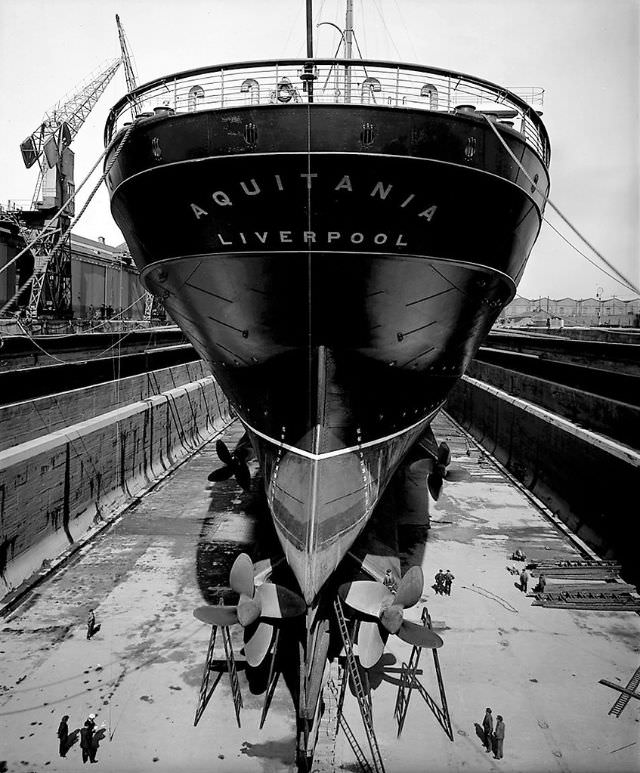
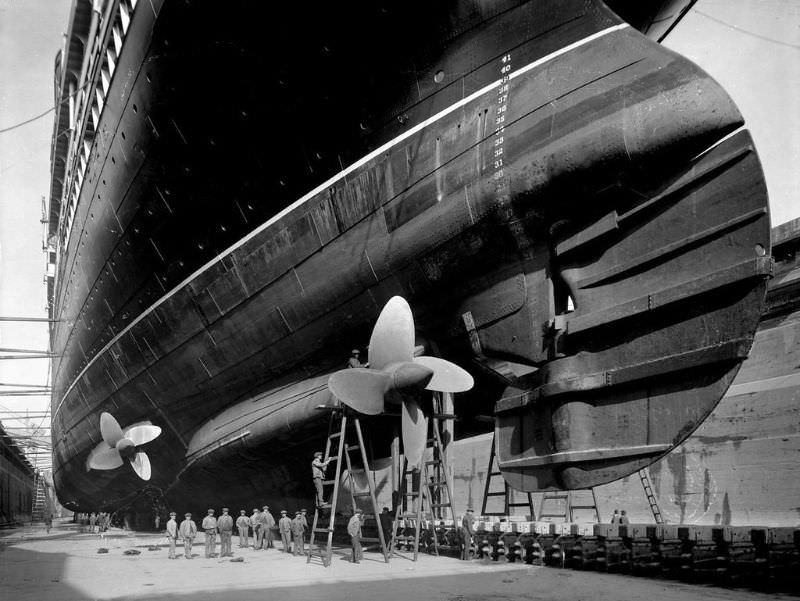
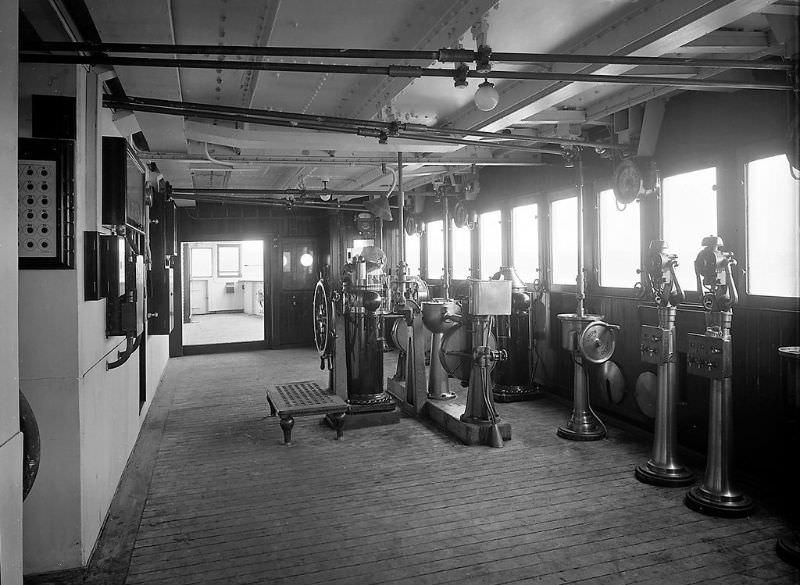
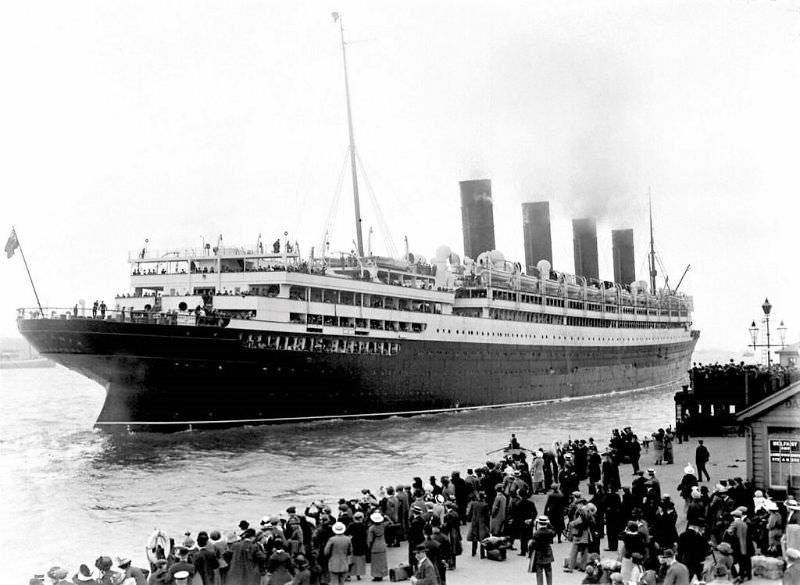
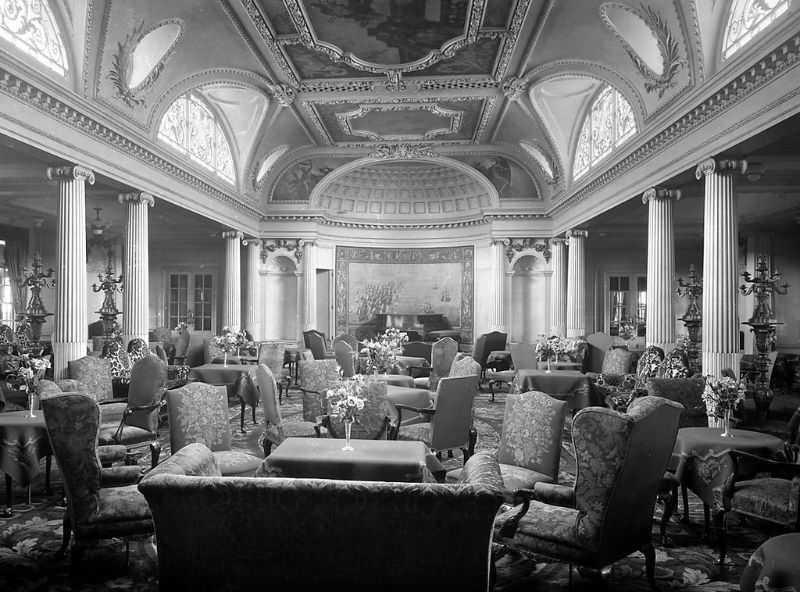
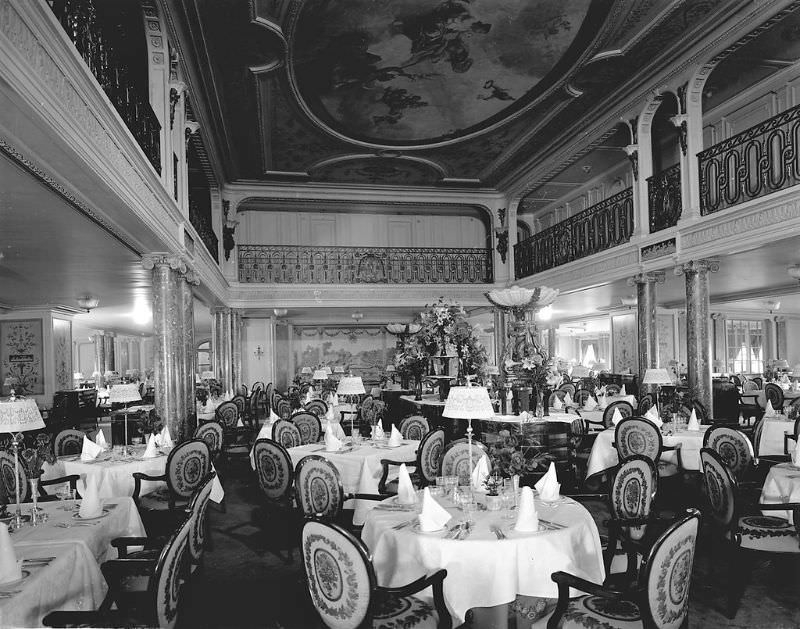
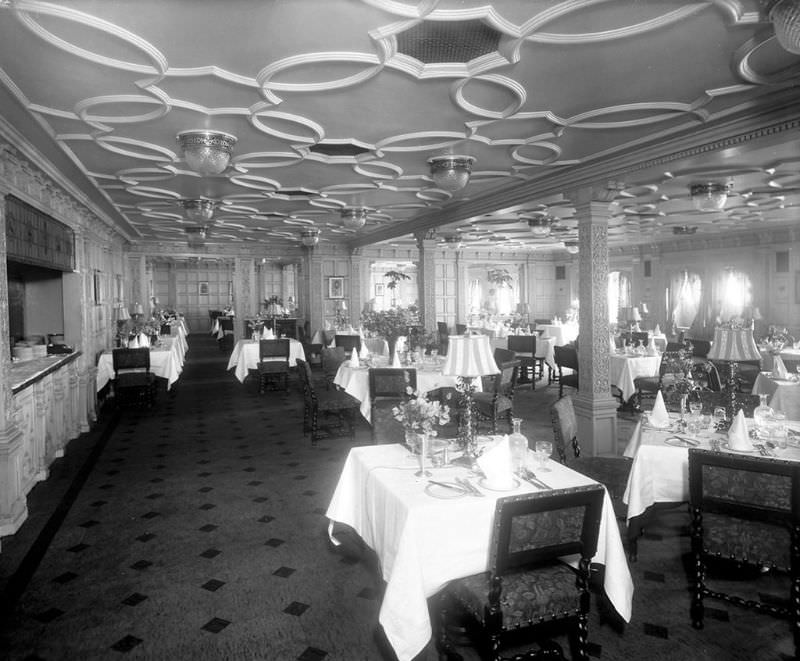
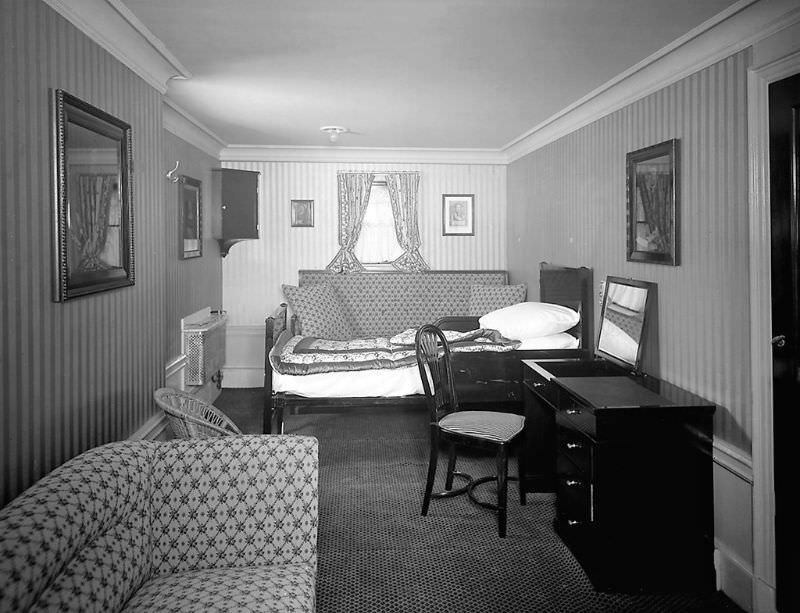
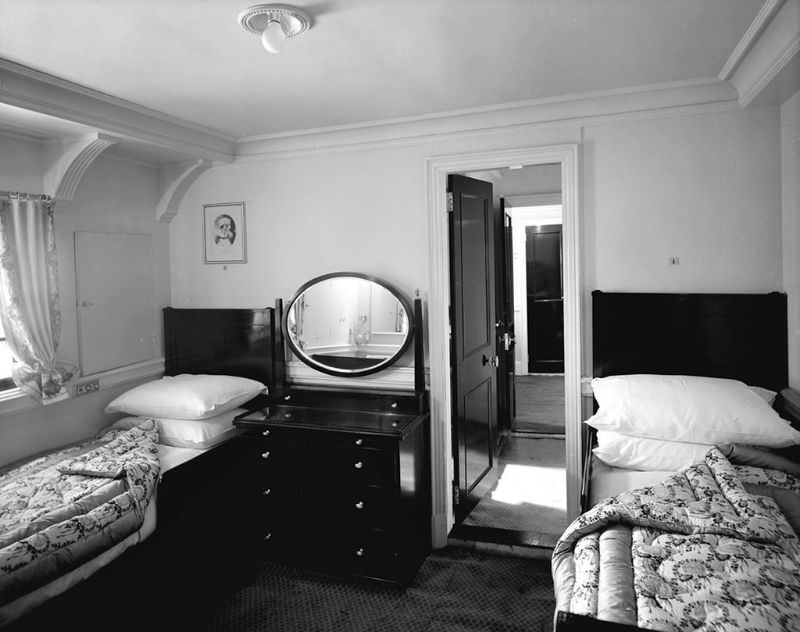
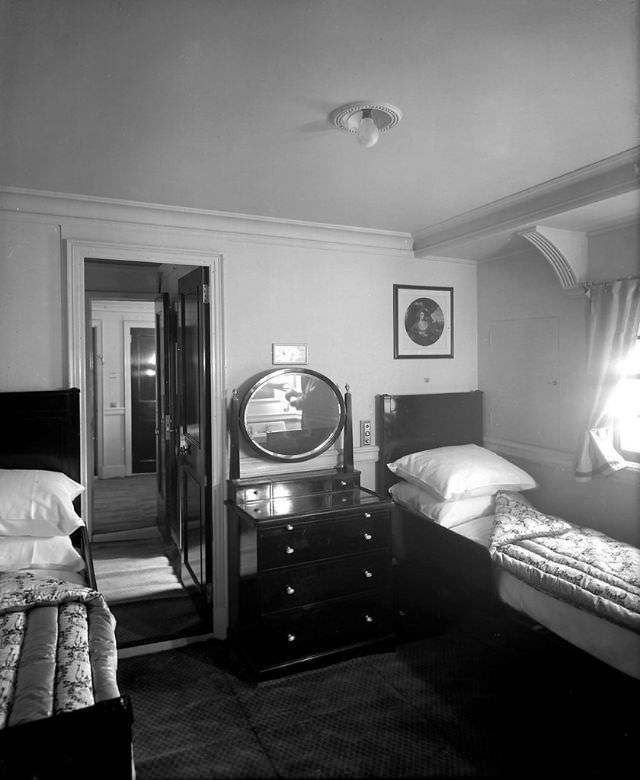
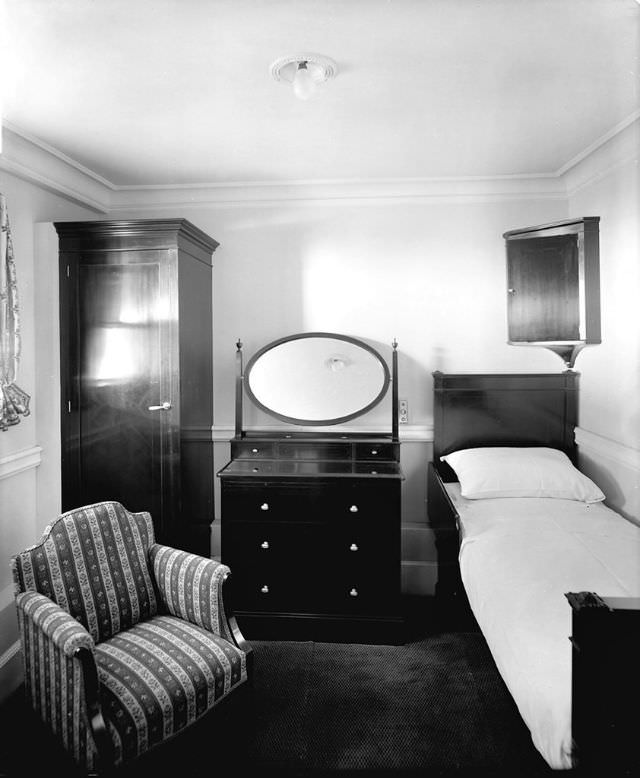
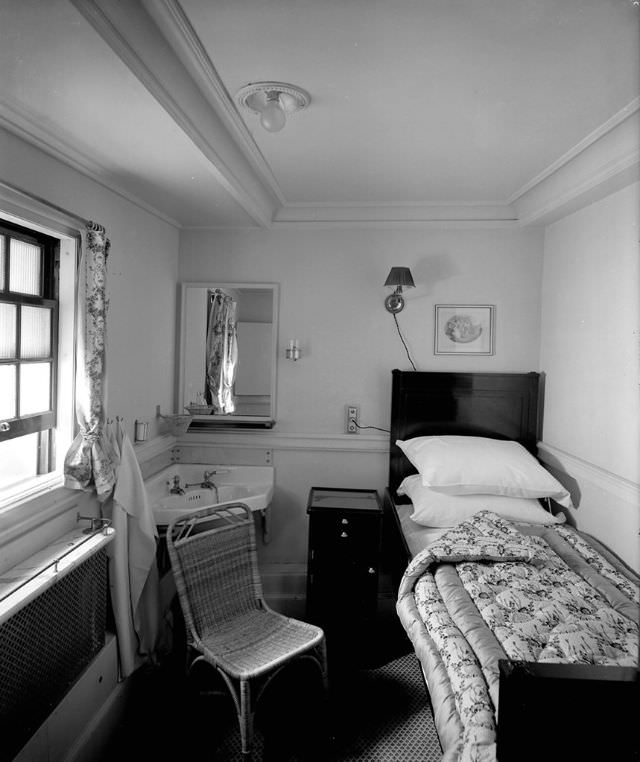
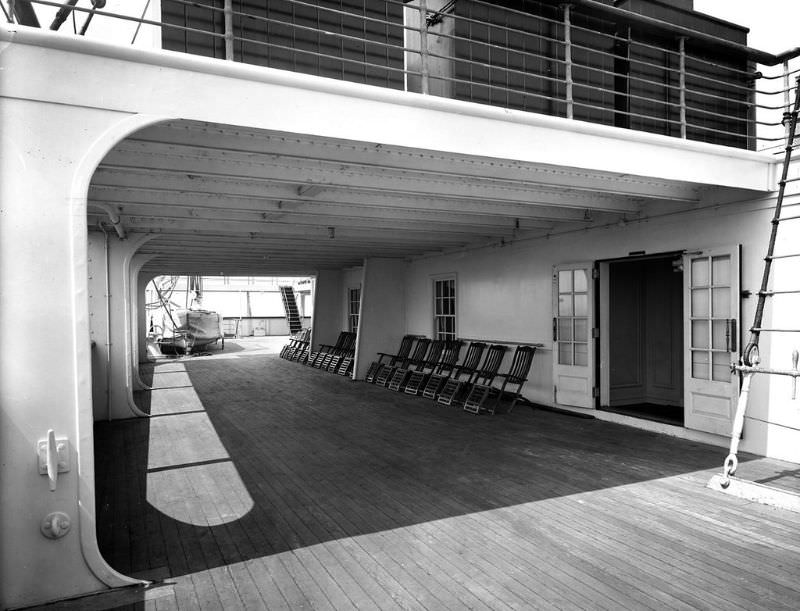
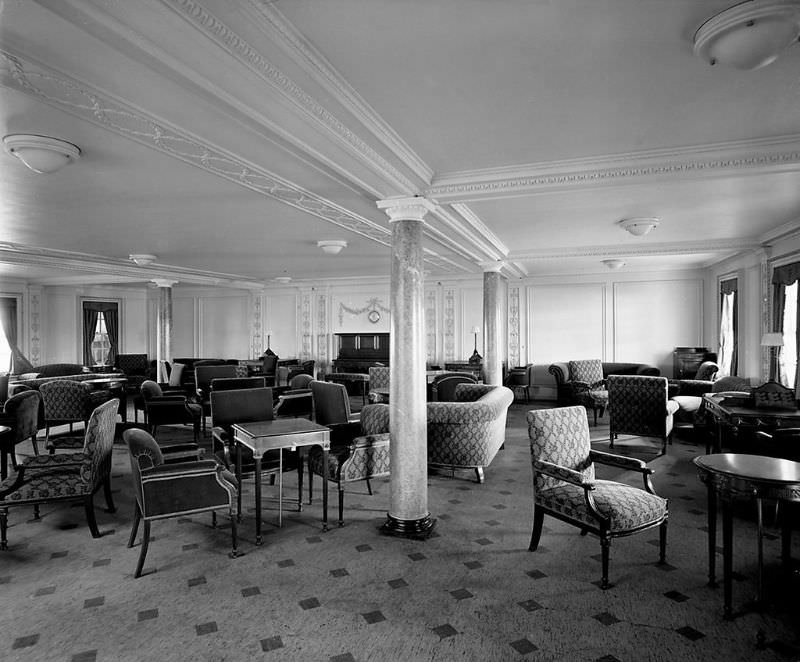
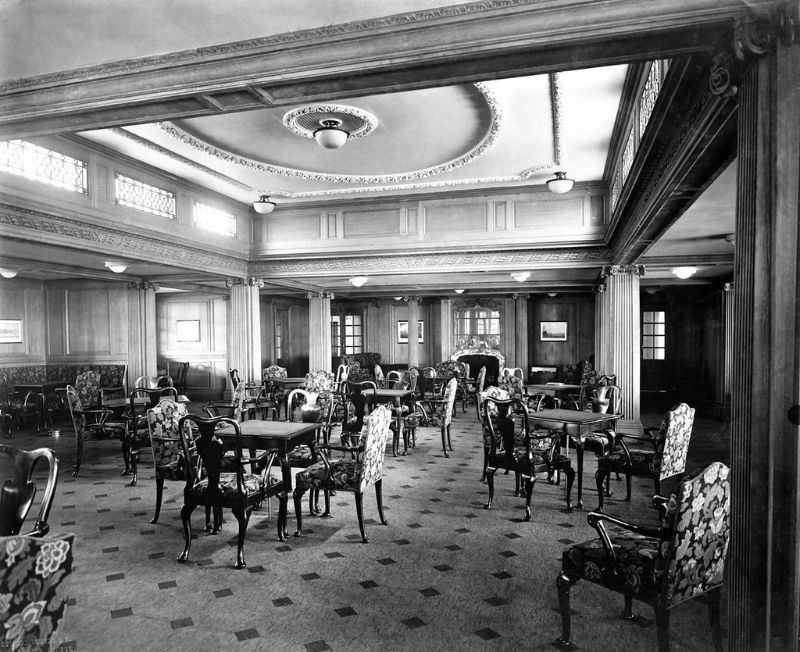
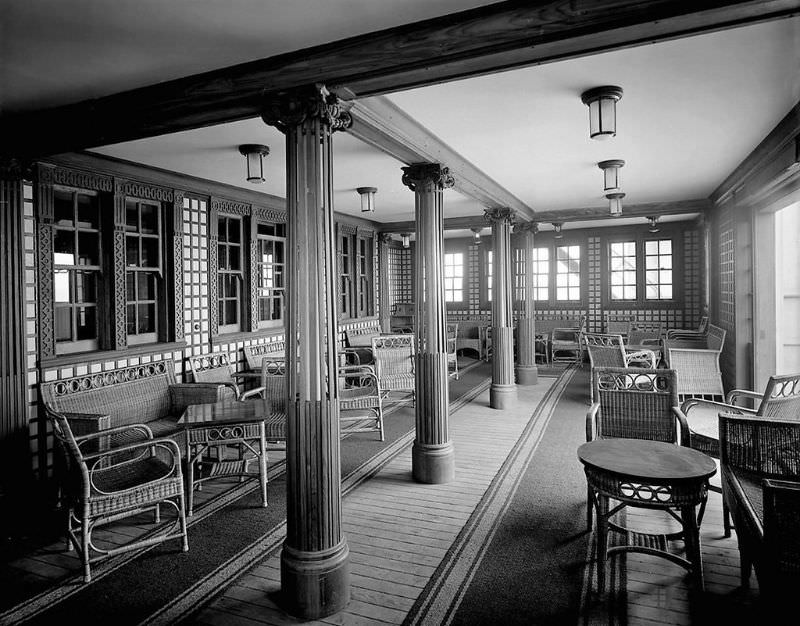
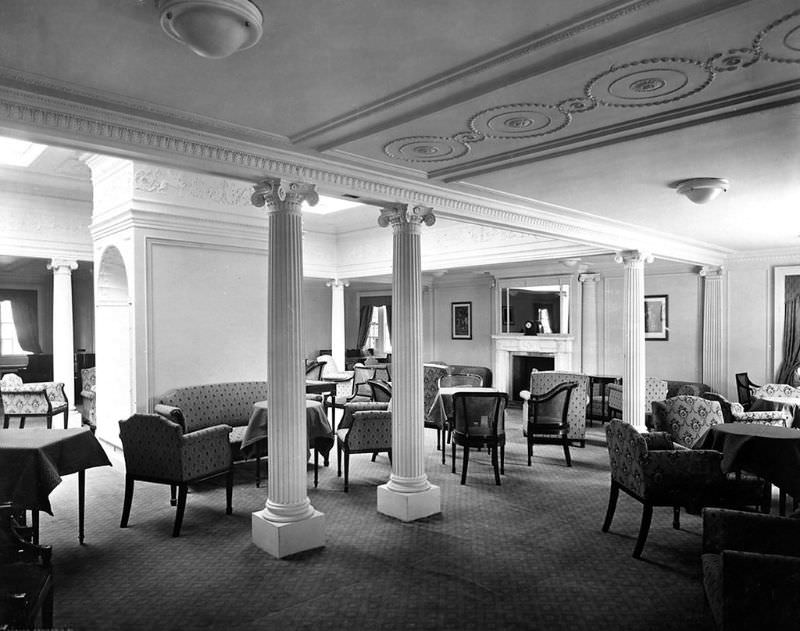
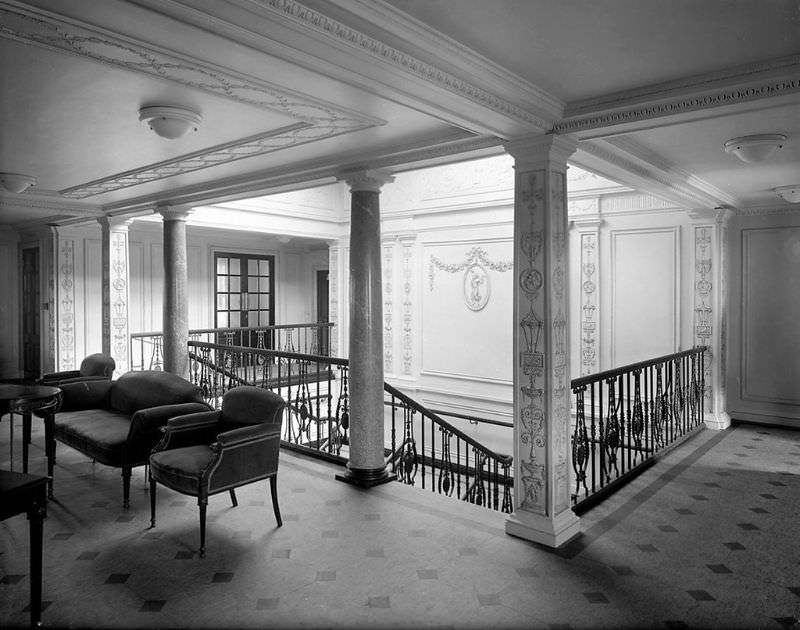
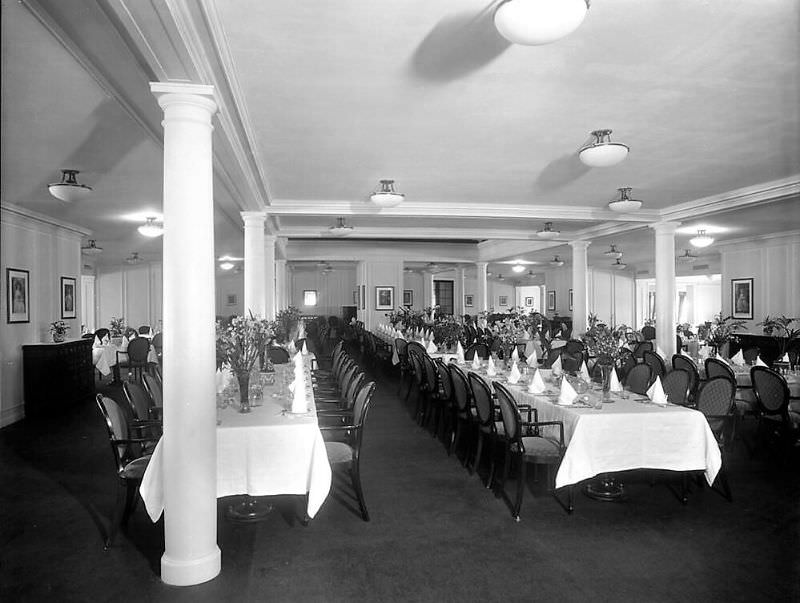
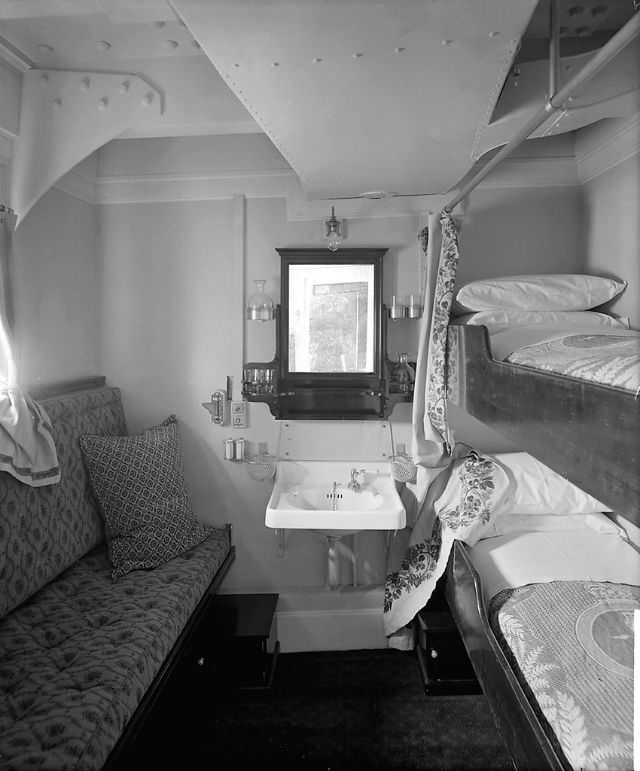
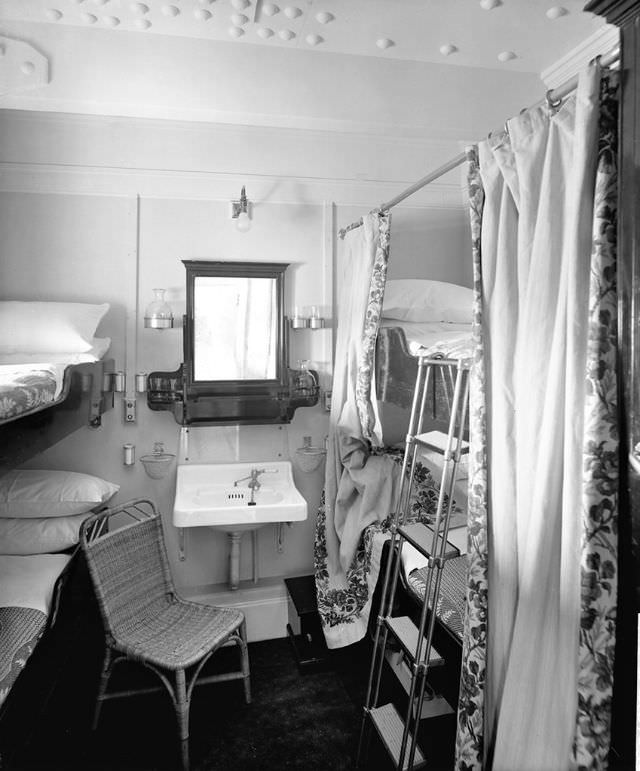
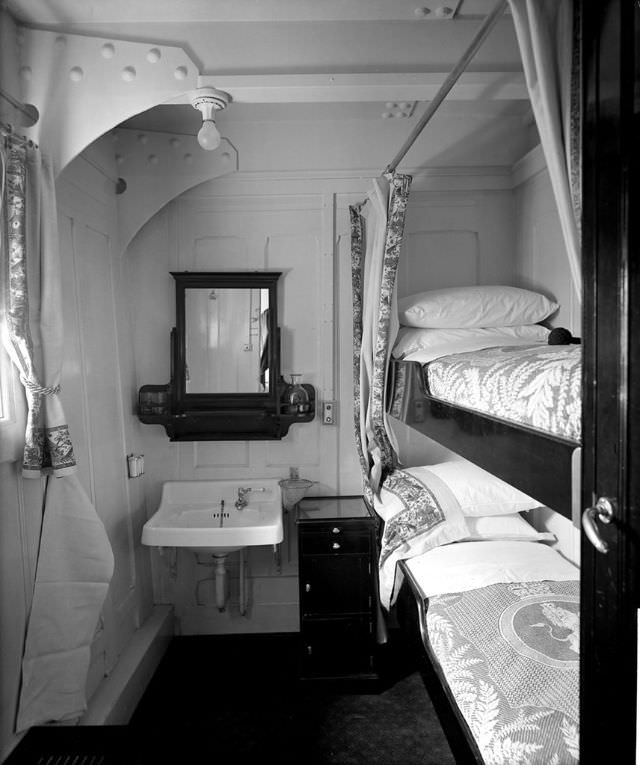
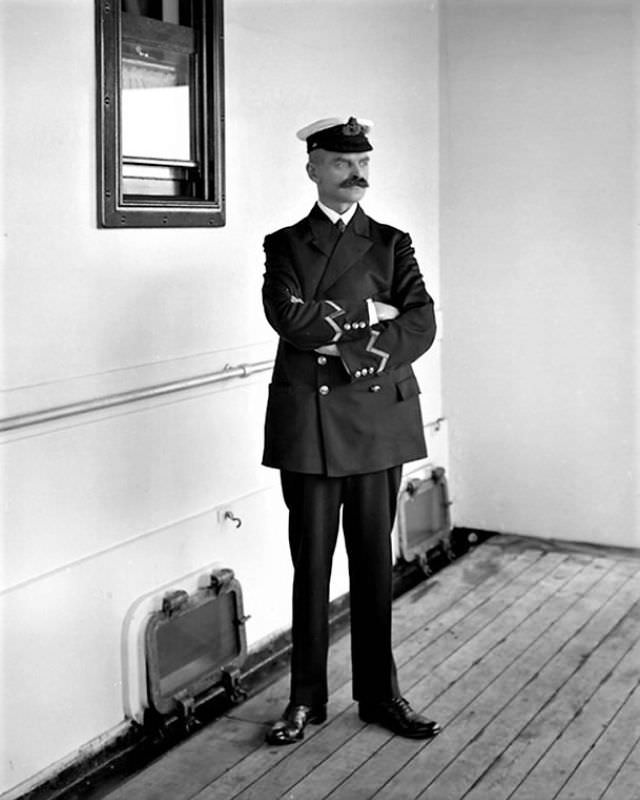
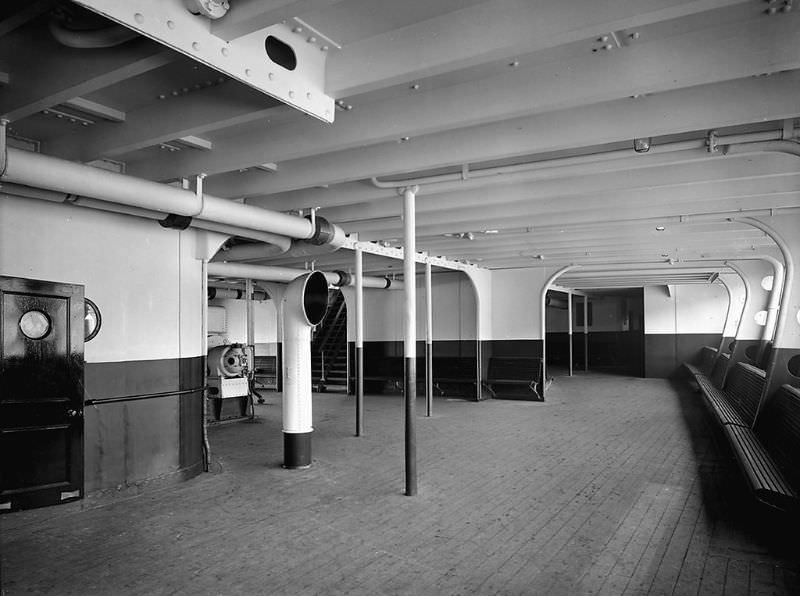
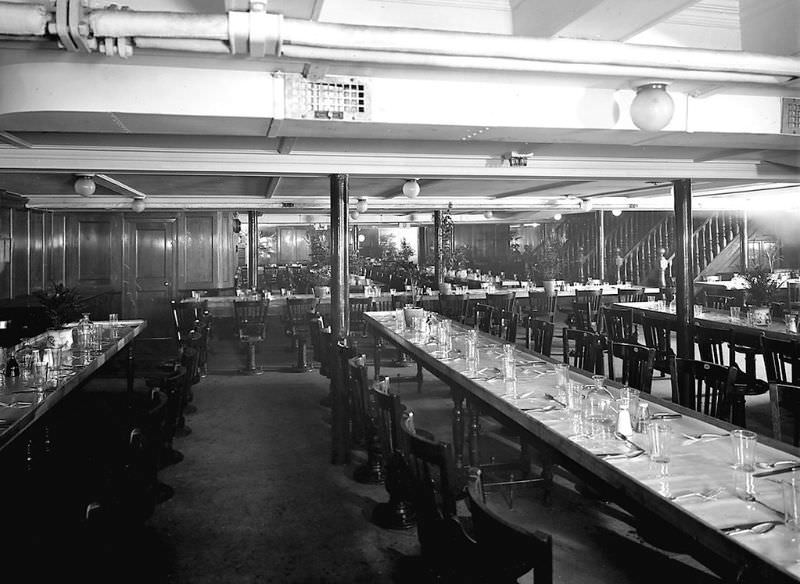
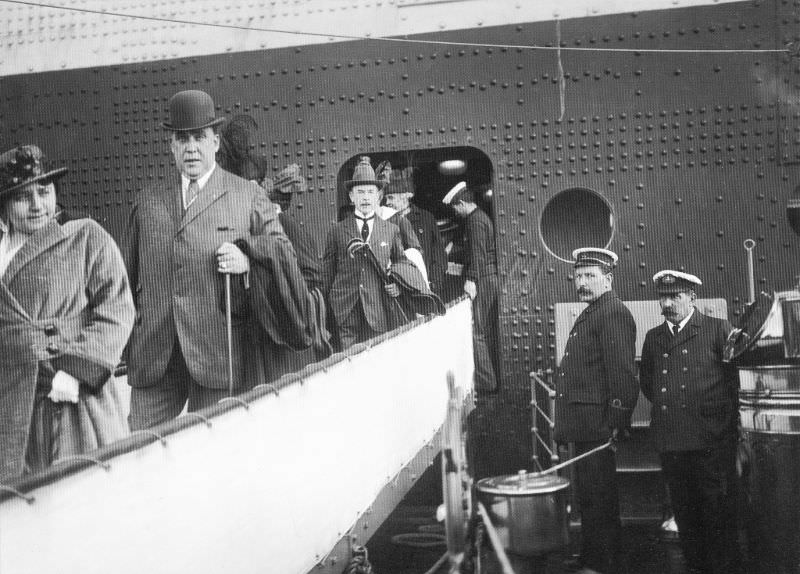
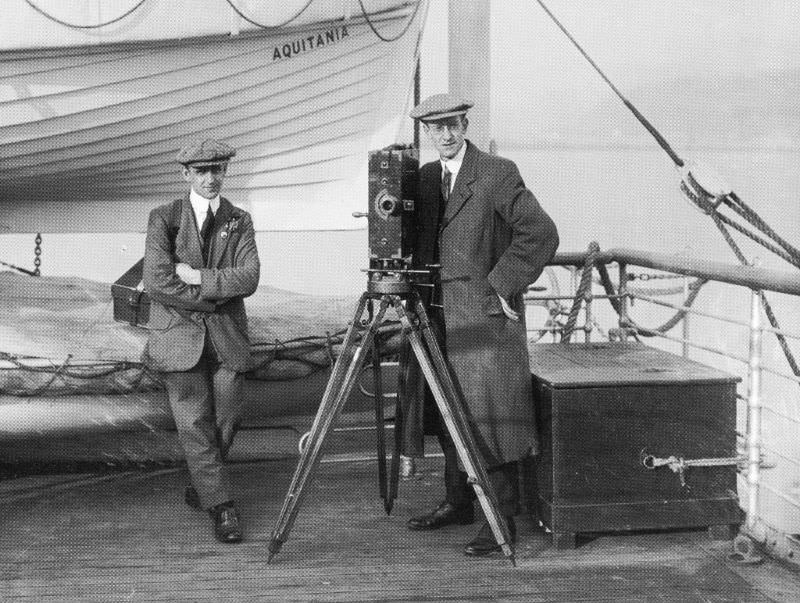
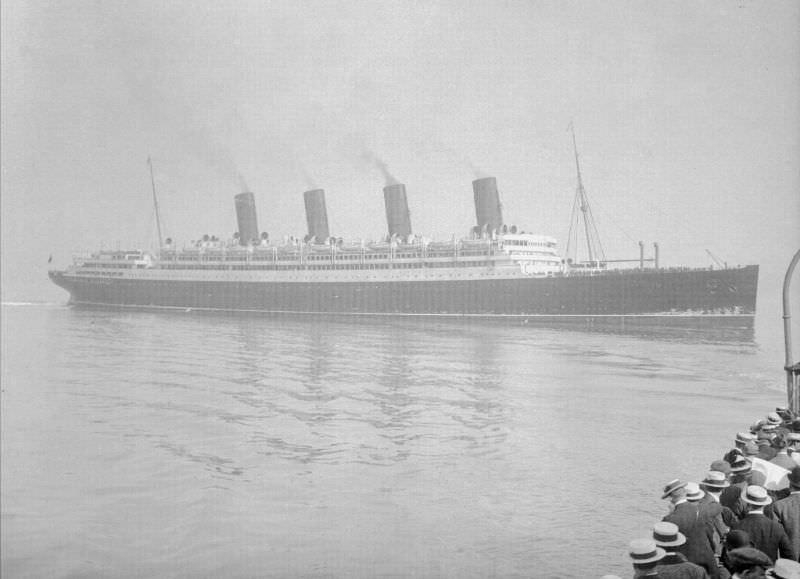
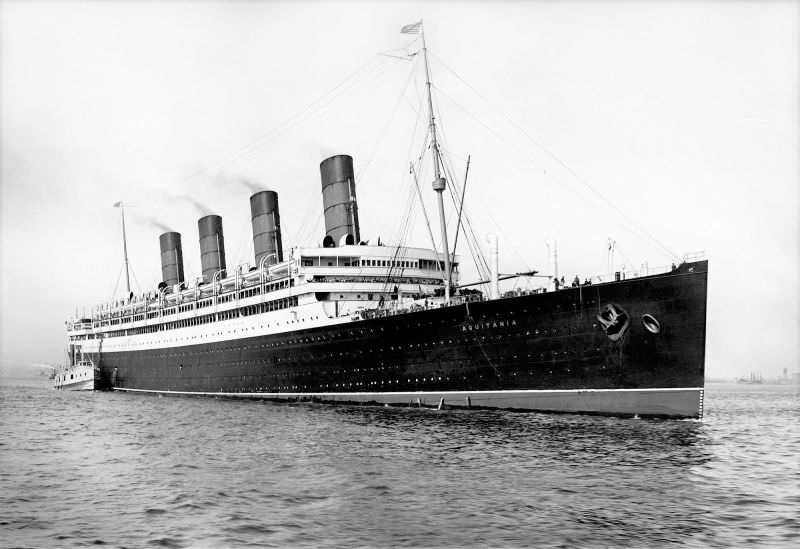
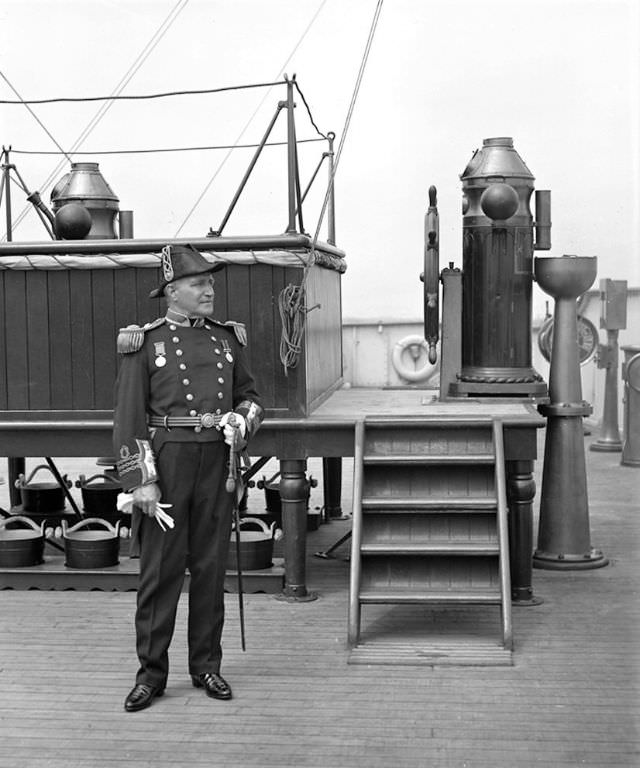
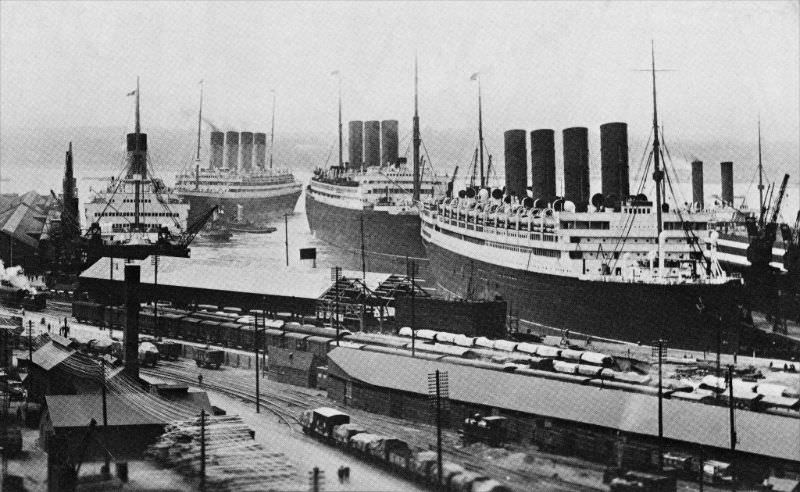
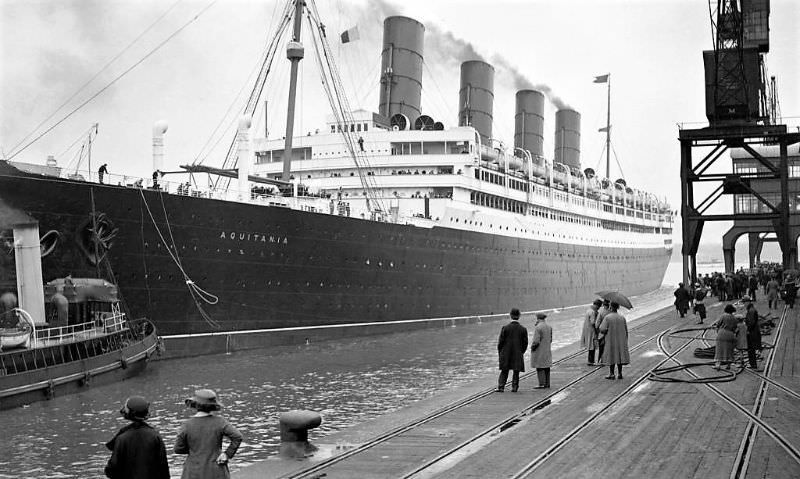
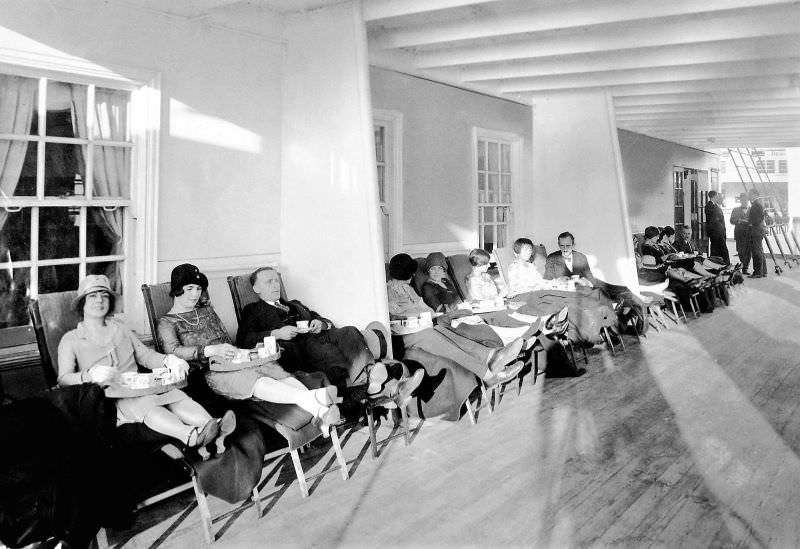
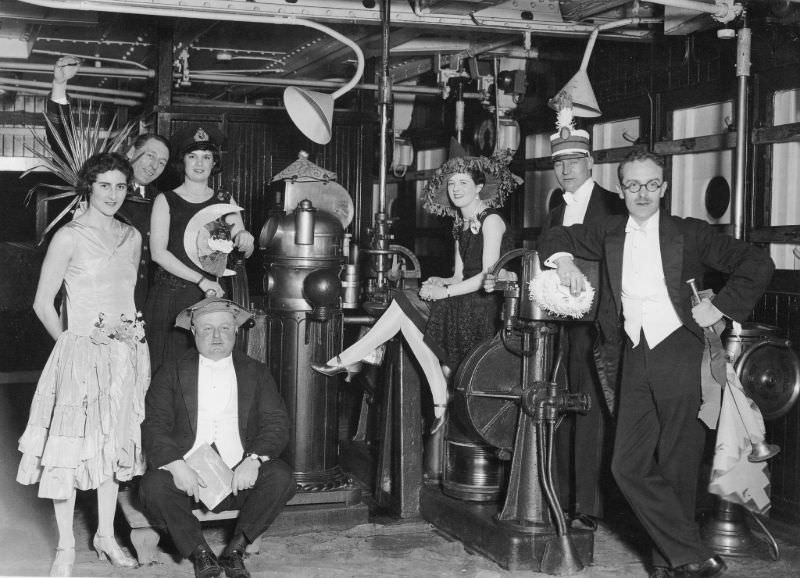
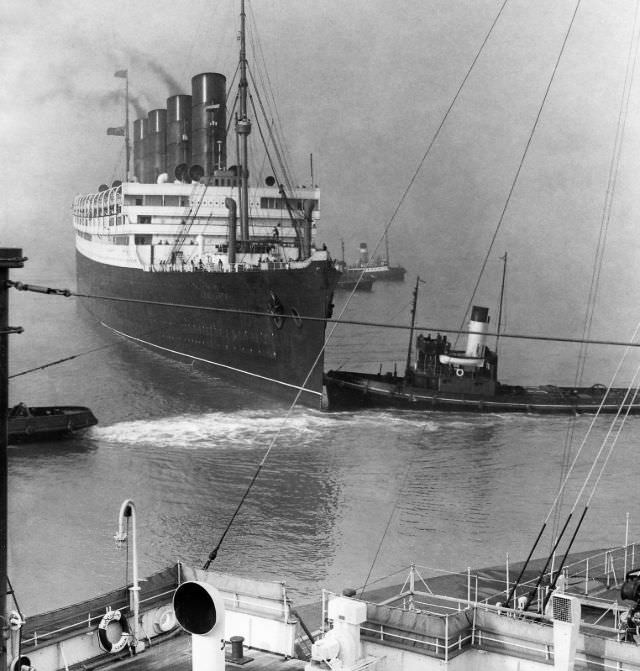
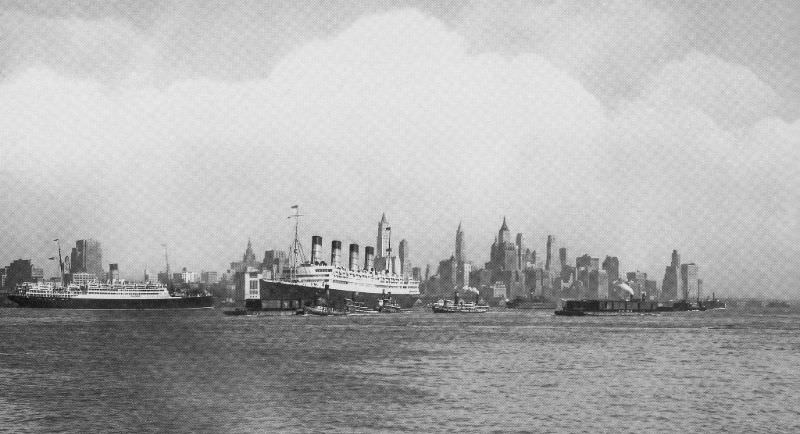
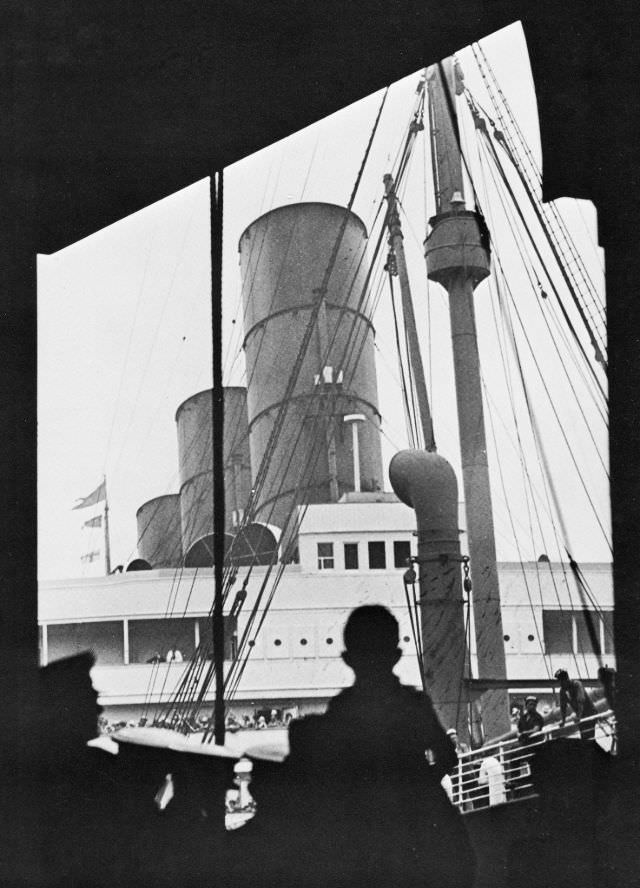
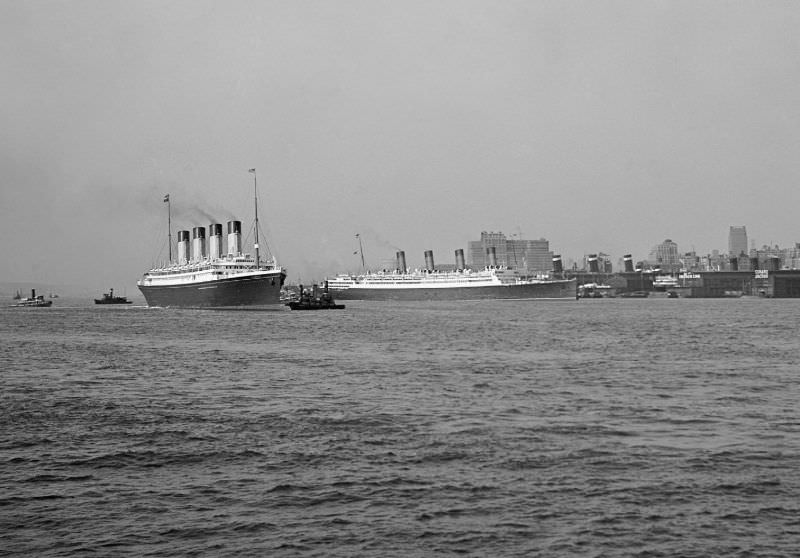
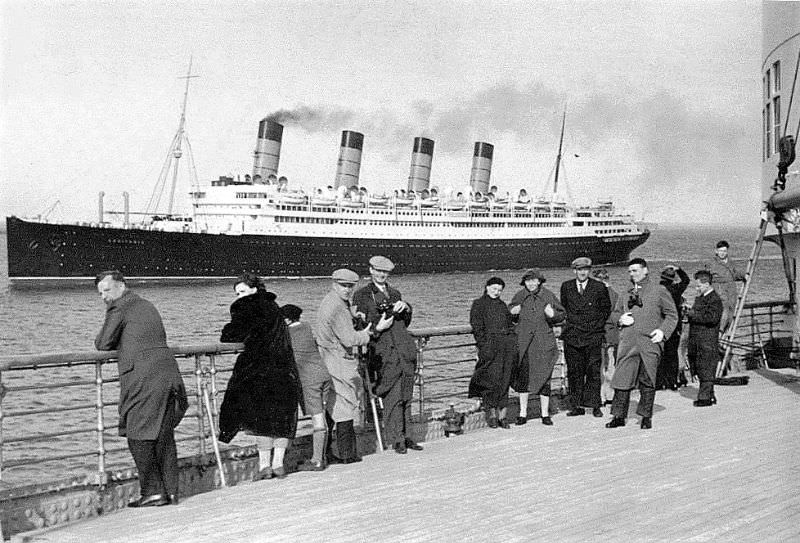
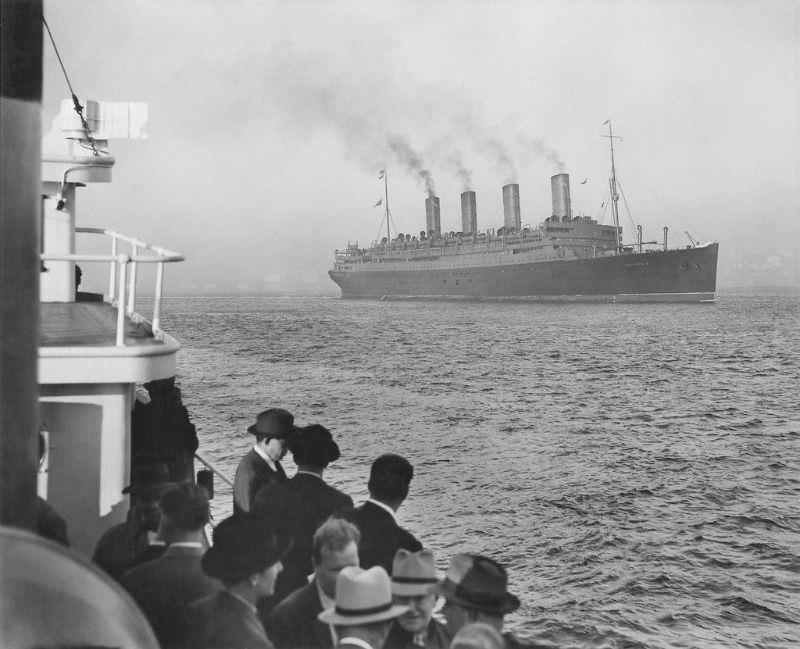
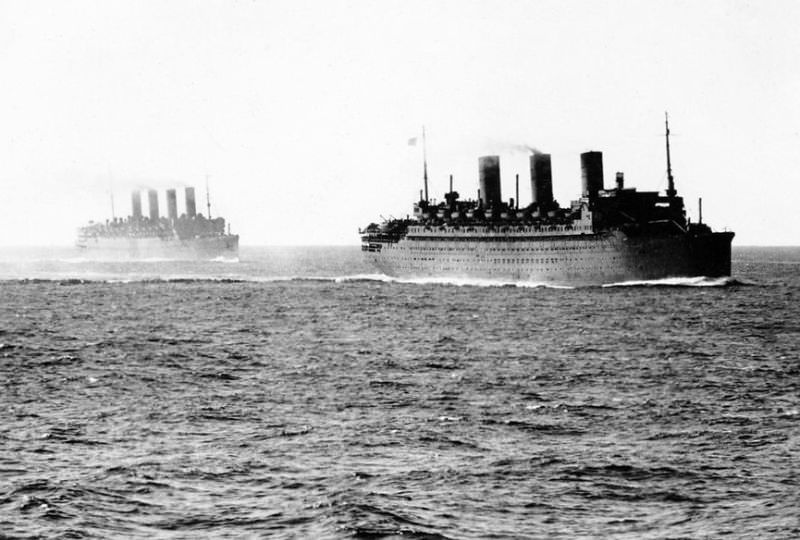
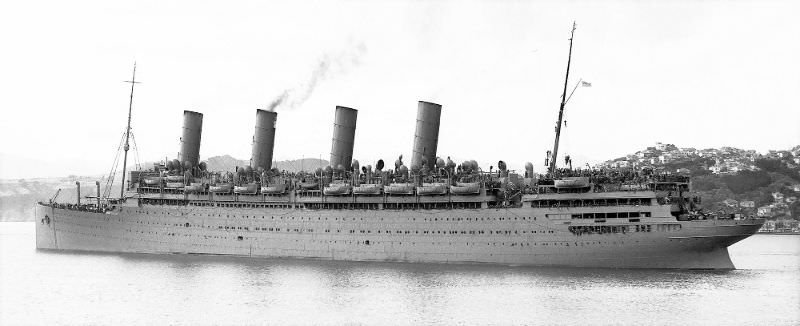
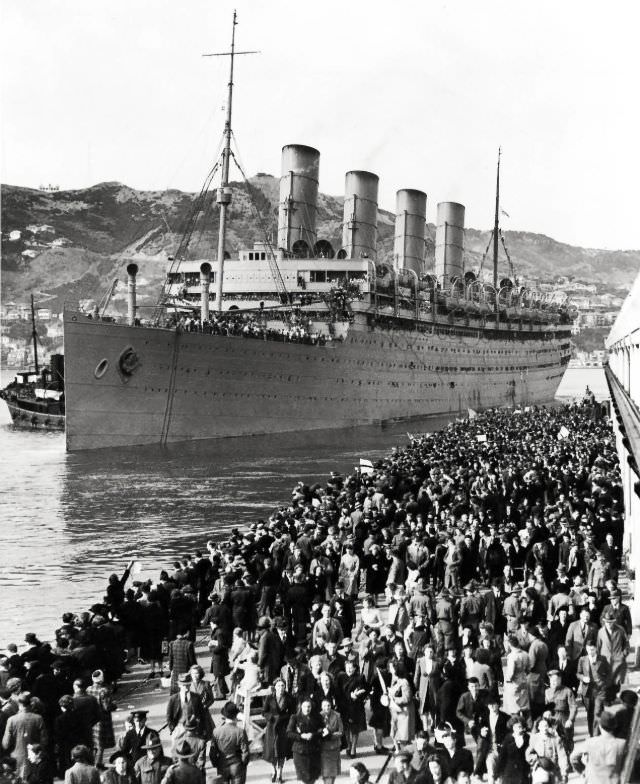
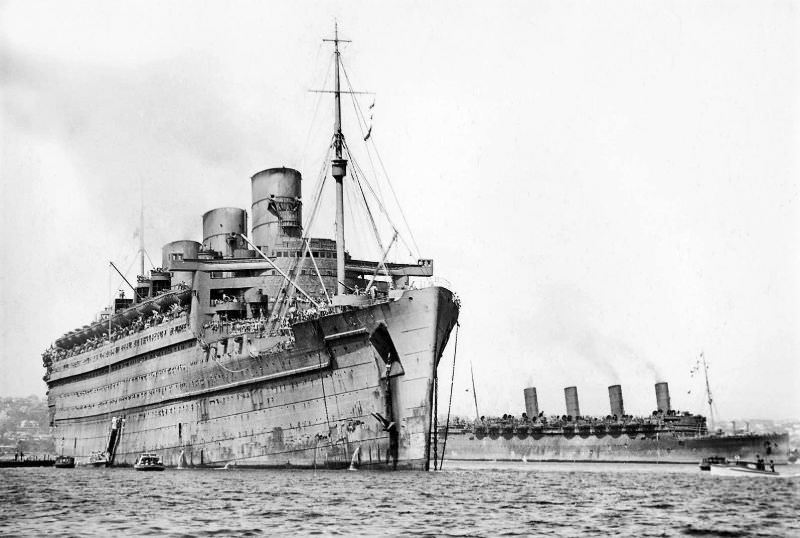
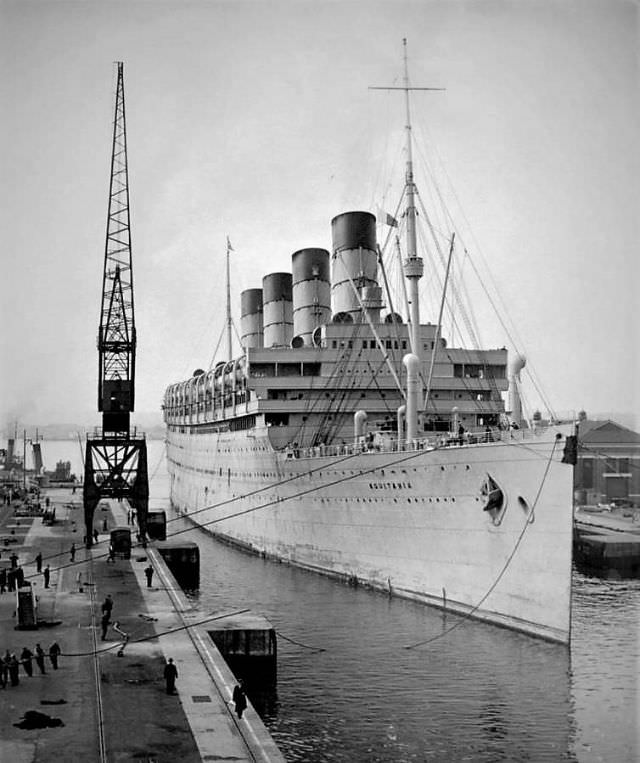
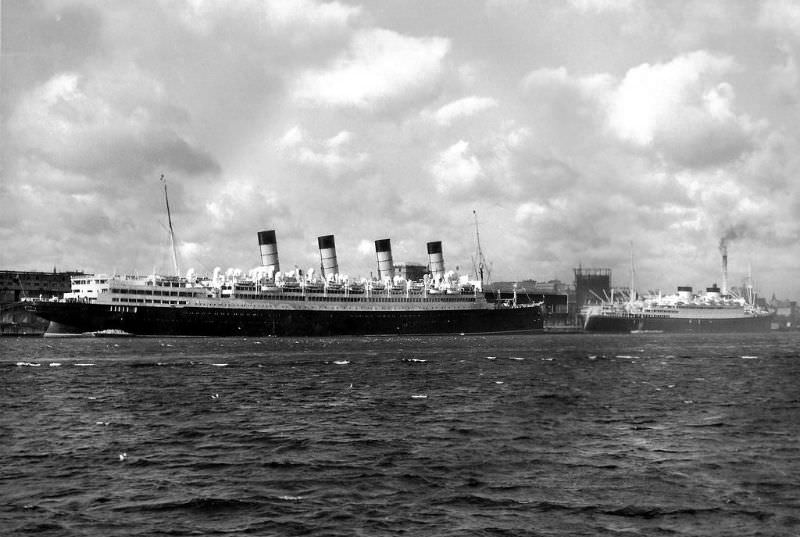
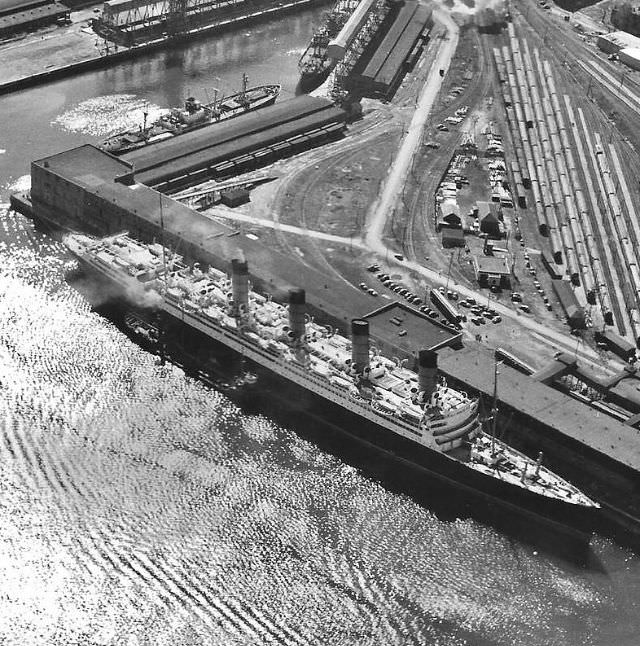
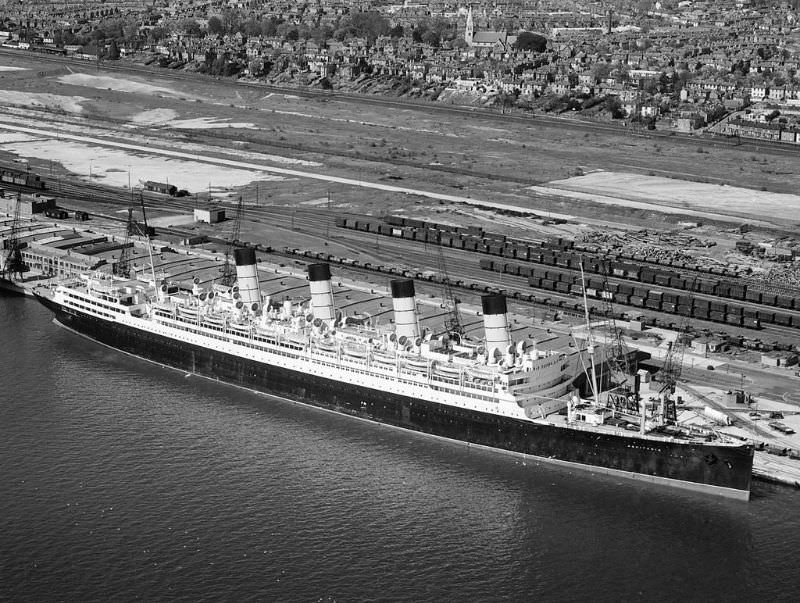
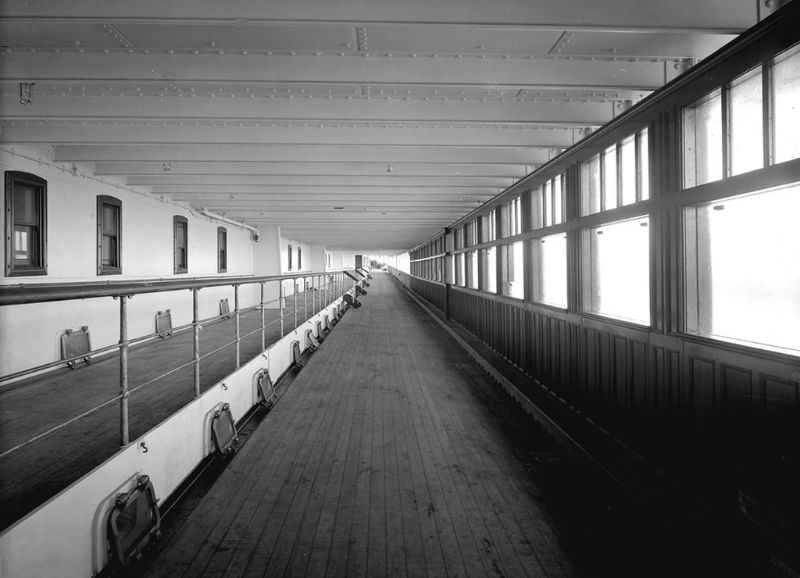

My favorite ocean liner is the Aquitania. It is better than the Olympic class.